Issue 9 | May 2023
Our community answers "What does it means to be a woman in maritime?"

PASSING THE BATON From Father To Daughter: Krupa and Rahul Modi
Nildeniz - Breaking New Ground in Turkey's Maritime Industry


Issue 9 | May 2023
Our community answers "What does it means to be a woman in maritime?"

PASSING THE BATON From Father To Daughter: Krupa and Rahul Modi
Nildeniz - Breaking New Ground in Turkey's Maritime Industry

And many more...
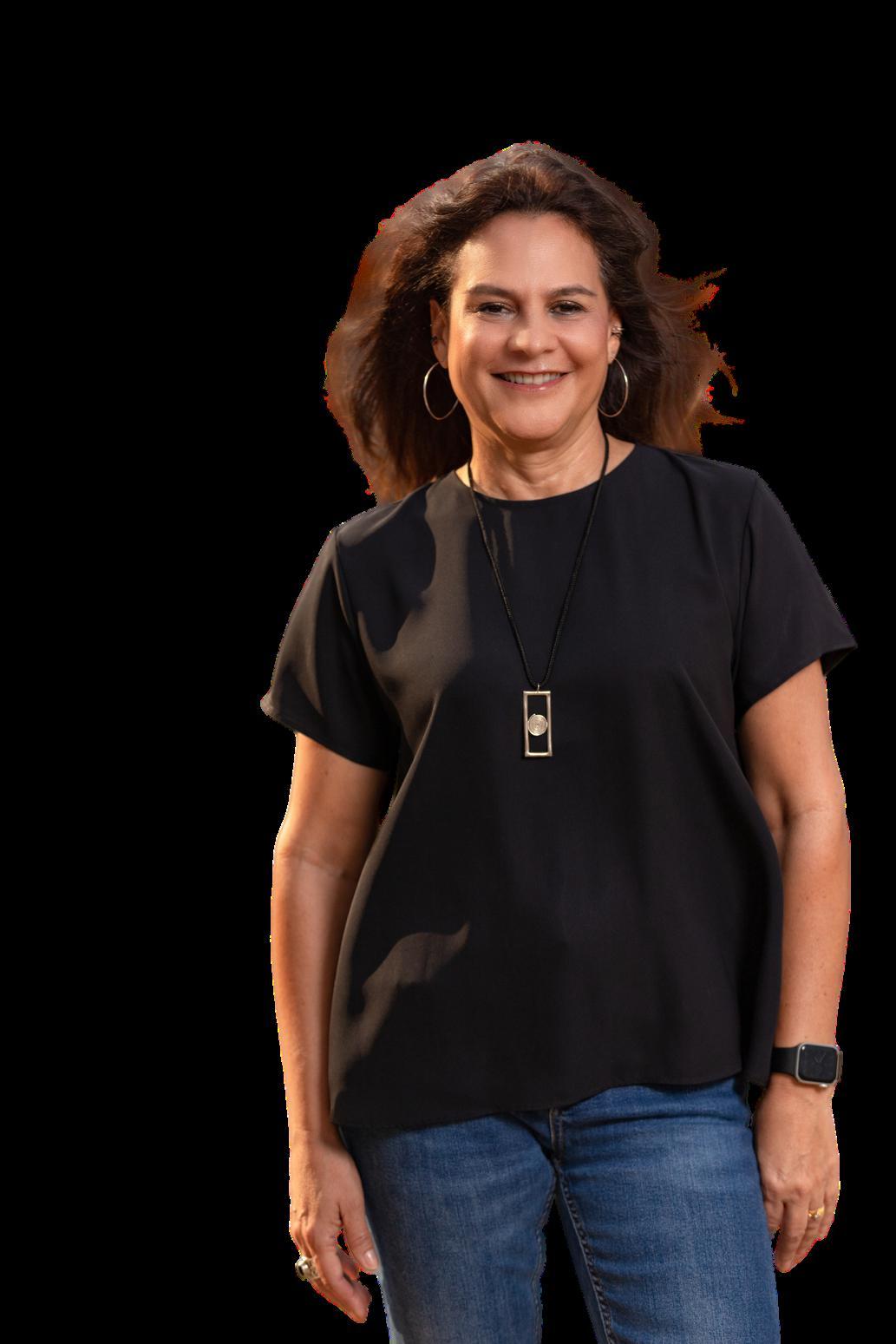

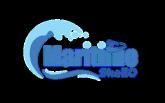
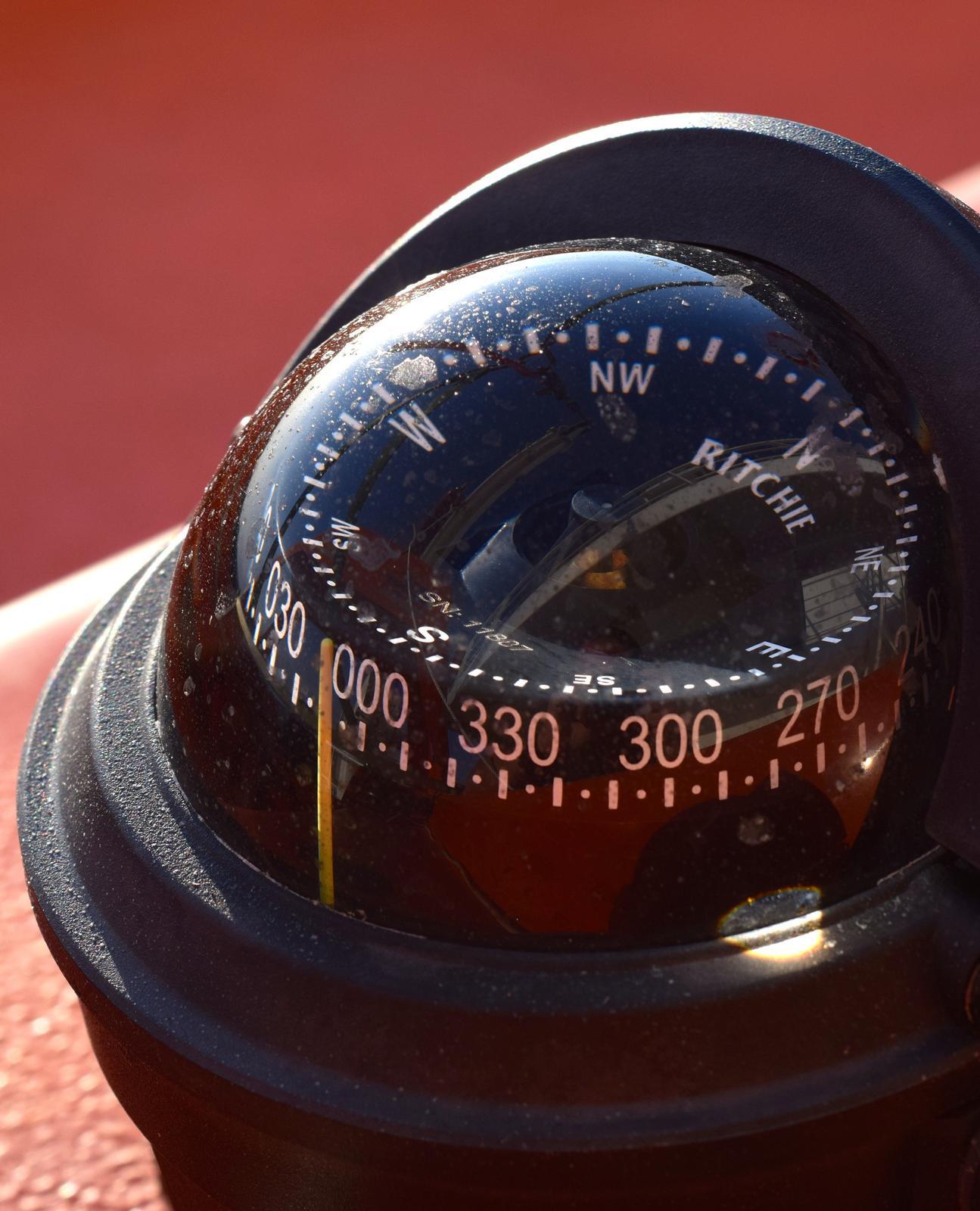
34 COMMUNITY SPECIAL
38 MARITIME MEDIA’S ROLE IN ENSURING A FAIRER WORKFORCE


Sam Chambers
40 LAUNCHING OF ANGLOEASTERN WOMEN OF SEAS (AWOS)
Priyanka Gupta
44 STUDENTS CORNER
Vaishnavi Harish
47 ANNOUNCING THE MARITIME SHEEO CONFERENCE 2023
53 REMNANTS OF A VESSEL
Jyotika Jain
55 SHE _ SEESREWRITING WOMEN INTO MARITIME HISTORY
HAPPY INTERNATIONAL DAY FOR WOMEN IN MARITIME!
May we continue to help each other brave stormy seas.
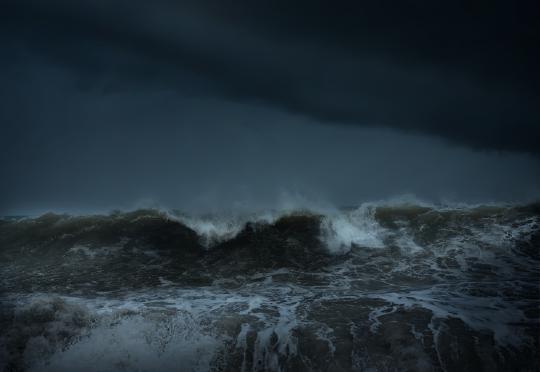

The theme for this year is 'Mobilizing networks for gender equality' and with the launch of The Maritime SheEO Community this year, we have done just that. Within a month, we were able to get 300 aspiring women - both at sea and onshore - to come onboard
The community is brewing with conversations almost every day including celebrating wins and sharing annoyances at work. This truly is a network for women to help each other upskill and grow
May has been a busy month for me! From my visit to Jeddah (for the AWIMA Women in Biofouling Management Workshop), to Dubai (Seatrade Maritime Logistics Middle East), to UK (IMO), and Bangkok (UNESCAP), it's a busy packed schedule. I'm doing what is important to me - spreading awareness and making a business case for diversity in maritime We've made great strides so far and I know we have a lot more to do.
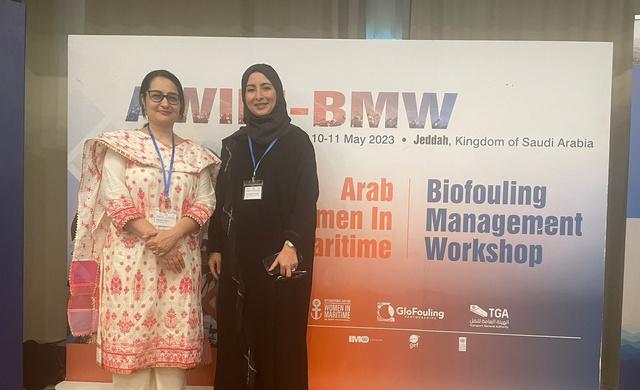
On the cover this month is Ms Ilya Espino de Marotta She is truly a pioneer in her region and has been very inspiring. This conversation has truly been inspiring to read.
She of Change was founded to share stories of women While this edition is a little lighter than our other issues, it certainly makes for a great weekend read. Each and every article here is worth reading.
She of Change is your voice - write to us to share your stories and achievements.
I’m happy to share that the 4th Maritime SheEO conference shall be held in Mumbai on November 21, 2023. The theme of this conference is “Diversity for Innovation and Growth” and it is truly an event by a woman in maritime for women in maritime.
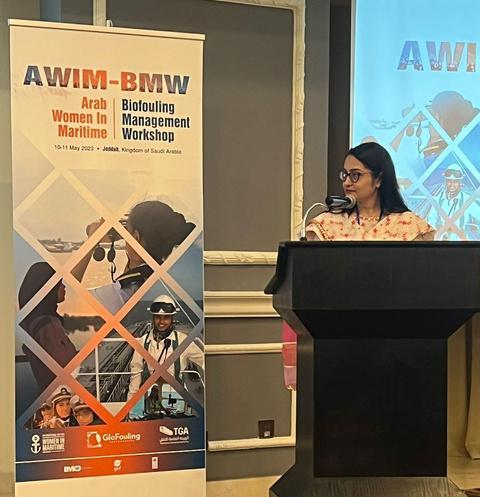
We welcome you all to be part of this event and do reach out to us to know how you can be part of this and drive change in our industry
Reach out to me at Sanjam@maritimesheeo.com


Regards,
Sanjam Sahi GuptaGreetings and a hearty welcome to the latest Edition of She of Change.


This issue commemorates the International Day for Women in Maritime, which is observed on May 18th, by highlighting the accomplishments and inspirational journeys of some exceptional women professionals, many of whom are women who have been appointed for the first time in roles previously held only by men in the shipping industry. Among these women are Nildeniz Sutcu Sen, Turkey's first marine pilot, and Kalpana Desai (Labour Trustee) Board Member, Mumbai Port Authority / Secretary, All India Port & Dock Workers' Federation.
Ilya Espino de Marotta, also the first woman Vice President of the engineering department for the Panama Canal, is depicted on our cover page. She was the Chief Engineer for the Panama Canal Expansion Project A great feat, and you should read about her incredible path in the interview that the magazine has published.
A report on the debut of AWOS, as well as the company's efforts and measures to develop a healthy and inclusive environment for its women seafarers, has been covered and is a must read.
In addition, Deniz Arslan, a seafarer, provides her testimony on her inspiring career path and the fulfilment she feels working with Seaspan. Many more amazing stories about strong and talented women will captivate you
Passing the Baton from Father to Daughter, MACN and its India Operations Initiatives, Fiji
WIMA, and the Role of Maritime Media in Fostering a More Equitable Workforce are among the other fascinating articles in this edition.
We truly hope you enjoy reading this issue of She of Change. Please email us your suggestions for articles that you would like to be published in the upcoming edition due out in June.
Regards,
Loretta Fernandes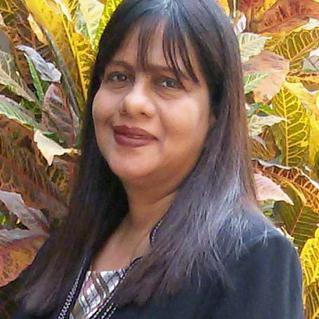
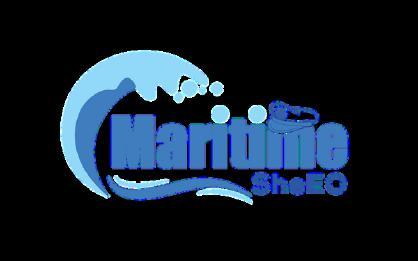
The She of Change is a wonderful read! The articles by Katarina is brilliant in particular, and I am also amazed at how well our women seafarers can write! My compliments to them and to your editorial team
Waiting to know when the next the SheEO Conference will take place.
Dr.(Mrs.) Malini V Shankar, IAS (Retd) Vice Chancellor, Indian Maritime UniversityWith “Glass Ceiling” being a barrier of the past, the transition of women leaders into underrepresented sectors like the Maritime Domain indeed deserves applause and all of us who are representatives and stakeholders of this Maritime Domain in various capacities must put across our acknowledgment to Women Leaders in this niche sector who have been engaged in curating and editing the magazine “She of Change”
The articles and snippets collated in the magazine are surely a testimony of the efforts, commitment, and competence that the women in the Maritime industry bring to the table Harnessing the capabilities of a diverse and inclusive workforce that women bring along with them is an attribute that has immense potential and would surely take the maritime Sector to a higher business pedestal I wish the entire fraternity of Maritime SheEO and She of Change all the very best in the years to come, may you all be mobile, ONWARDS, and UPWARDS.
The “She of Change” is a very well crafted magazine, global in outlook, and has a wide range of topics. The contents are positive and growth oriented, with open and candid interviews Katarina Stanzel’s article on bringing the focus more on “ethics and values and not being too prescriptive” is relatable ‘Mums at Sea’ is an interesting concept, companies can be inclusive and flexible if they want to retain talent and experience Best wishes to the team for more such endeavours.
Dr. Aprajit Bhardwaj Developmental Psychologist & Educational Consultant
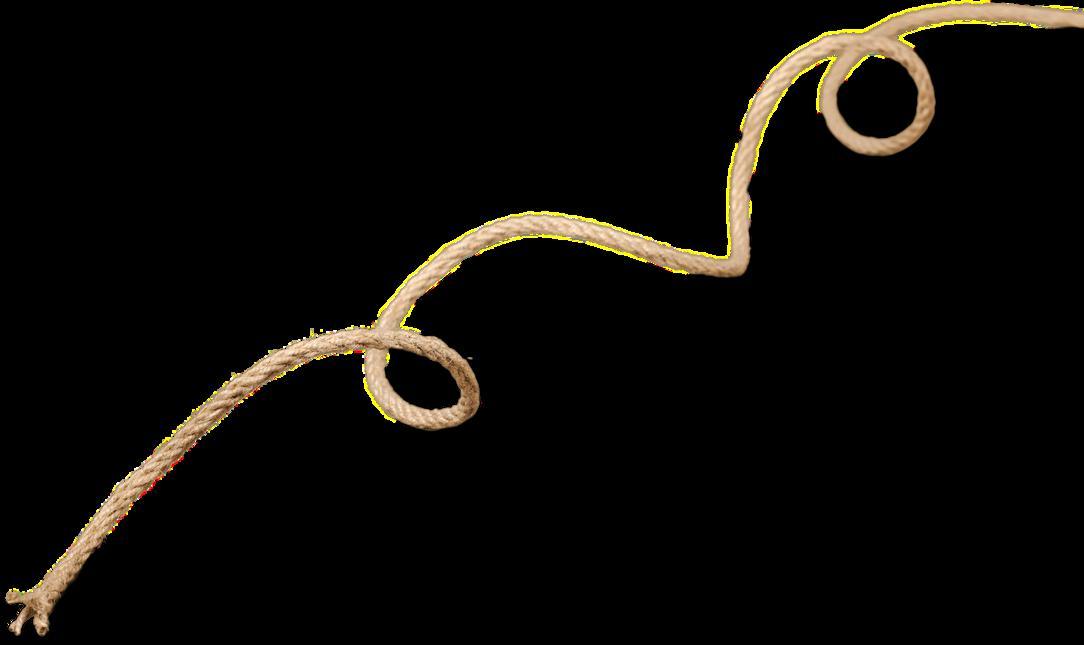
Women can also

 Elpi Petraki Operations, Chartering & Business Development Manager, ENEA Management President, WISTA International
Elpi Petraki Operations, Chartering & Business Development Manager, ENEA Management President, WISTA International
Elpi Petraki is a well-known shipping professional who is an active member of several international shipping associations and also serves on the boards of a few of them. She was recently elected President of WISTA International, and in this account, Elpi discusses her vision and goals for WISTA.
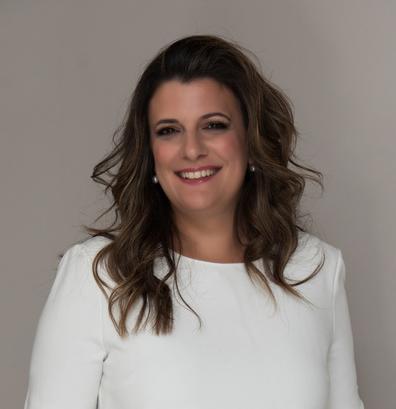
There were not many women working directly in the maritime industry when I first started my career in shipping 25 years ago Thankfully, much has changed since then, and today we are seeing more women in a range of professions throughout the sector.
I have been working for ENEA Management for the last 25 years. I am an active member of Intertanko, and I am honoured to serve as the 2nd Vice President of the Hellenic Shortsea Shipowners Association (HSSA), as a board member of the Hellenic Chamber of Shipping, and on the board of the Hellenic Maritime Museum. Last year I was also invited to be an Honorary Fellow of the Institute of Chartered Shipbrokers

Throughout my career, I have also kept WISTA close to my heart. I truly believe in the benefits of diversity, inclusion, and equality, from both a business and personal perspective I have been a member of WISTA for over 20 years and, before becoming the President of WISTA International, I was the President of WISTA Hellas.
My goal as President is to ensure WISTA
International continues to grow in order to provide women in maritime with a voice that continues to change the narrative by raising awareness of the challenges and issues women face – both at sea and in shore-based positions
I believe that together we can continue to make progress. As is the case with decarbonisation, digitalisation, and attracting the next generation of talent, overcoming the maritime industry’s diversity challenge will demand collaboration.
Today, the diversity and inclusion discussion is in the spotlight as never before and, at this moment of opportunity, we must capitalise on the momentum. Creating even greater awareness and driving the diversity agenda forward remains a huge challenge. Thankfully, too, we can share the load in overcoming it

Deniz Arslan, a Turkish seafarer currently employed by Seaspan India, shares her inspiring story of working in the maritime industry, her life at sea, and how she values her Company because she felt completely accepted and did not encounter any gender discrimination.
My approach to the maritime sector is slightly different I always loved the sea and had a fascination for it. I had never considered it as a profession until I decided on my major.

People around me thought it was strange that I chose this as my major because there were no role models in my life who were in the marine profession. They said it was unsuitable for women. They claimed that this vocation needs physical and psychological endurance, which the male ego has conquered
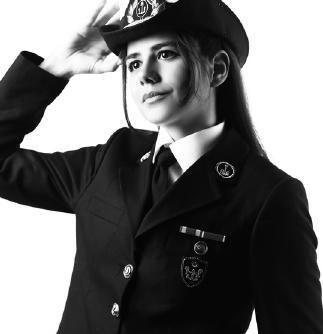
However, my family did not think like them. They thought that I could succeed if I wanted to. They also felt that the choice of a profession was very important, and I should decide what I was interested in. I believe this is the only way possible to move ahead and succeed in a profession. I graduated in 2018 from Istanbul Technical University Maritime Faculty and State University of New York Maritime College which was a dual degree program with honors.
After applying for job vacancies at several companies, I decided on the type of ship I wanted to work on before beginning my internship. Unfortunately, there are still companies in this century that do not even accept applications from a woman. In addition, some companies do not employ seafarers from different nationalities When this is the case, the options are quite low.
I finally got an opportunity to do an internship at a local company, I worked there until I started working for Seaspan Although I encountered many challenges and difficulties during my internship, none of them was able to discourage me.
My love and respect for this profession overcame the challenges. Throughout my professional life, there have been many people with different opinions. Some were people who still think that women bring bad luck on ships and don’t want a woman on board. They even believe that women would disrupt the order on the ships. However, there were some people who understood that women could work in this profession and encouraged us
Being a sailor is an unmatchable experience. Sometimes I feel so free in the middle of the sea, and sometimes I find myself in a very disciplined environment We travel all over the world, discover different places, and meet people from different cultures, which is such a pleasure. We get to see magnificent views that millions of people have not seen in their entire life and we sail with dolphins while they dance
near the bulbous bow Sometimes our life turns into an apocalypse.
On the other side, we experience terrible loneliness and are unable to reach anyone On land, it is possible to order anything, however at sea even something as tiny as chocolate may be out of reach for us.
We work on the weekends without even thinking about holidays. Ship maneuvers, for which sailors should be actively working, can occur early in the morning, in the middle of the night, or at noon. So, we don't have standard working hours In my opinion, the most devastating aspect of my profession is, that we cannot attend to the birth, death, or special moments of our loved ones. We miss those kinds of important moments in our life. I think our profession is one of the most difficult professions in the world. Certainly, all seafarers should be respected. Any discrimination between genders or races is meaningless and must not exist as we are all on the same ship.
I have already decided to pursue my desires and improve myself. I wanted to work on bigger ships in international companies.
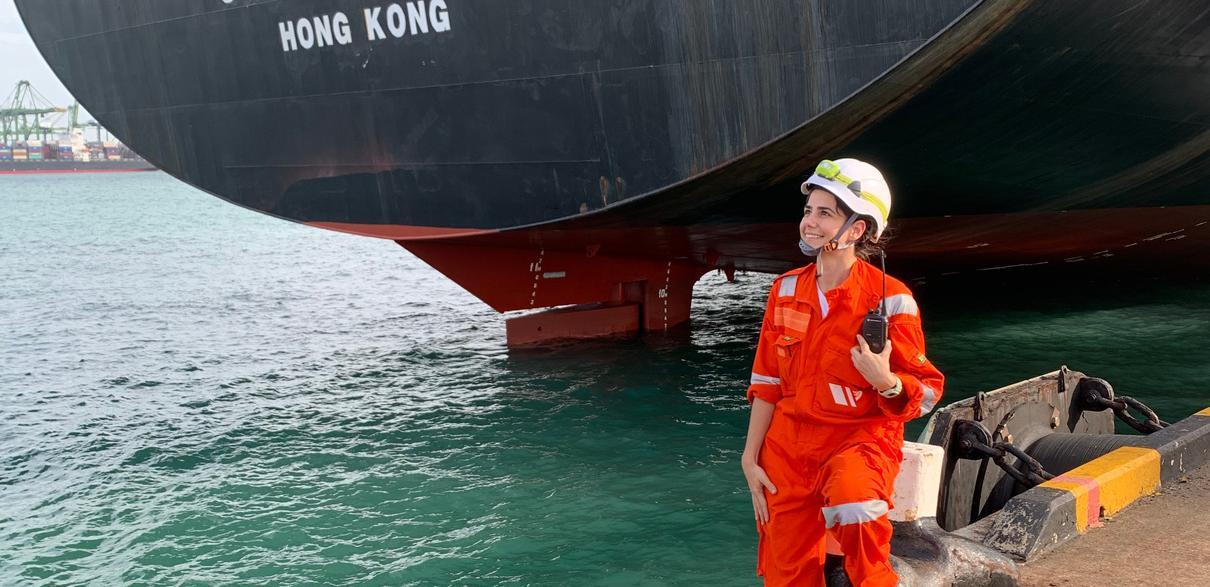
The people around me talked about the difficulties of changing companies and working with people of different nationalities. My fiancée and brother encouraged me about this and confronted me with the fact, that I could not reach my ambitions without leaving my comfort area.

I was in a huge dilemma between taking the risk However, I decided to work in Seaspan because of their company policies and their positive perspective on women. Now, I feel that I have made the right decision to serve under Seaspan. I feel safer, more respected, friendlier, more helpful, and last but not least more professional here than the other companies. Seaspan is not just a company, it's a family. At Seaspan I do not have to cope with the unprofessional discrimination and the psychological pressure that I had on almost every other ship. I am very happy that I was the first Turkish female officer working in Seaspan. I hope Seaspan will increase the number of women seafarers in their company. I highly appreciate them for giving me this golden opportunity and thank you “Cosco Fuzhou” my first vessel in Seaspan. I invite all of you to join the Seaspan family and you will certainly feel the difference

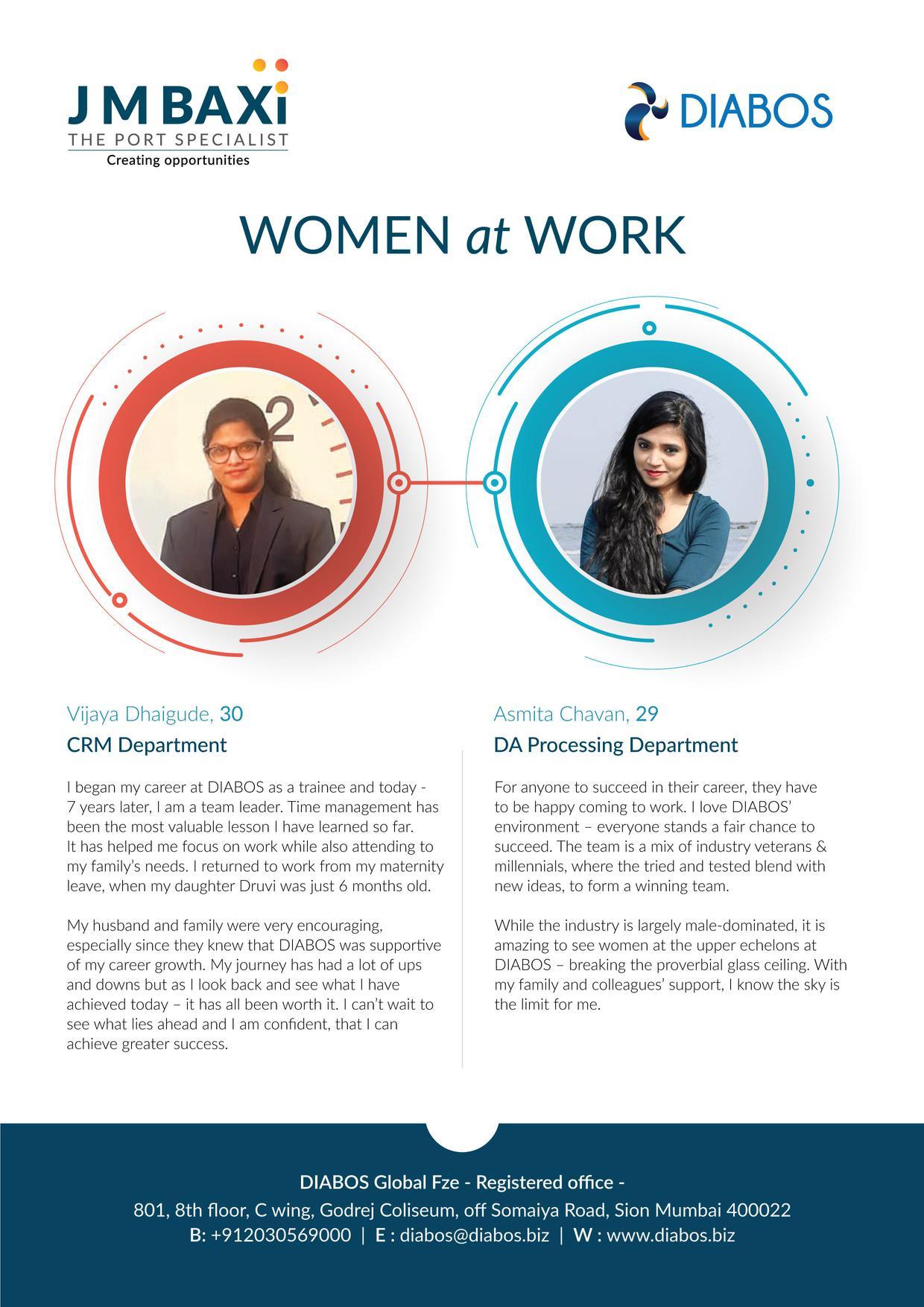
 Ilya Espino de Marotta Deputy Administrator Panama Canal Authority Republic of Panama
Ilya Espino de Marotta Deputy Administrator Panama Canal Authority Republic of Panama
Ilya R. Espino de Marotta is the first woman in the Panama Canal Authority's history to be appointed as Executive Vice President for Engineering. She led the Panama Canal expansion project, and in this interview, she shares her extraordinary and motivating professional journey
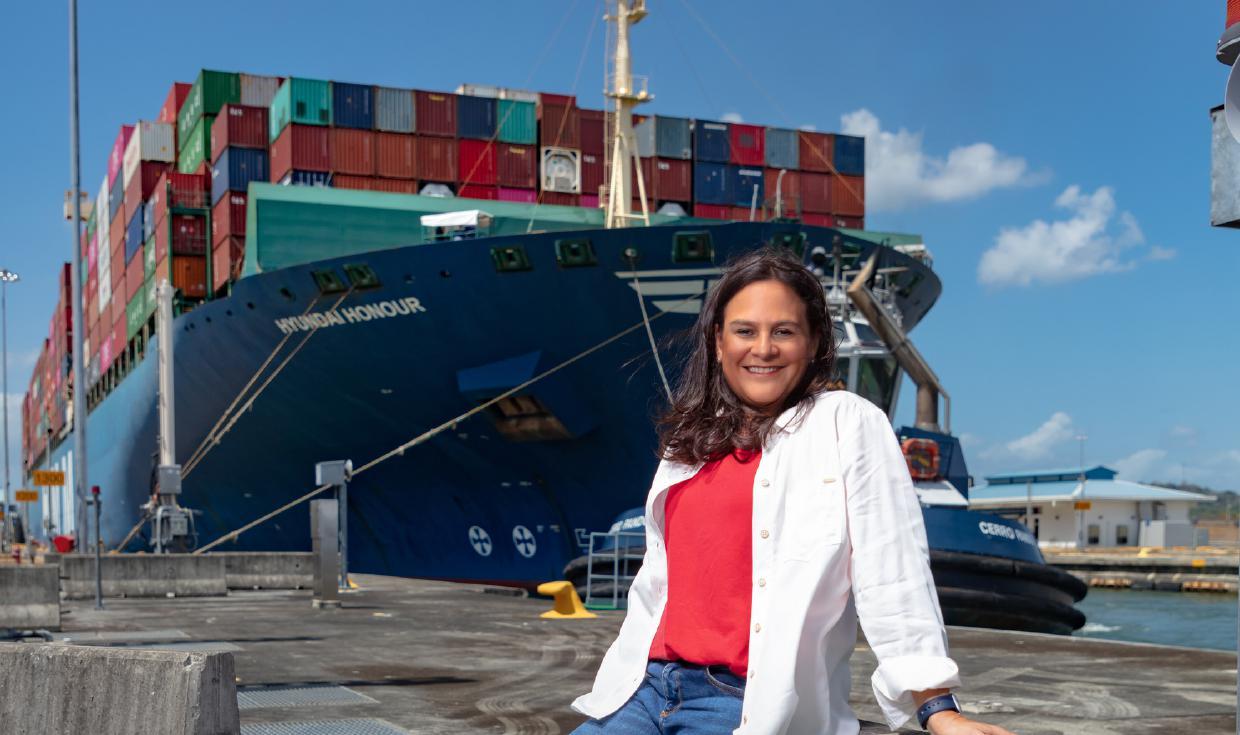
What has your journey been like so far?
I have had an amazing professional journey in my 37+ years in the Panama Canal I started as a recently graduated Marine Engineer in the Canal Shipyard, where all maintenance to our floating equipment is performed. I learned a lot, and my focus was design modifications, construction drawings, and bills of materials
It was a very rewarding job. The internal vacancies program, allowed me the flexibility to move around within the organization My first move was to the Dredging Division unit, where I worked as an engineer concentrating on dredging projects, specifications and the purchasing of major floating equipment. Later I transferred to mechanical design, including

cost estimating and contract specifications An interesting shift was becoming the Canal Valuation Engineer, working in our accounting office and then moving more into the financial area as a Capital Investment Coordinator in the Operations Department.

In 2002, I was selected as part of a team to produce a Master Plan for the Panama Canal, which included the Panama Canal Expansion Programme. This allowed me to become the Chief Engineer of the project's final five years of construction and ultimately the first woman Vice President of the Panama Canal Engineering Department
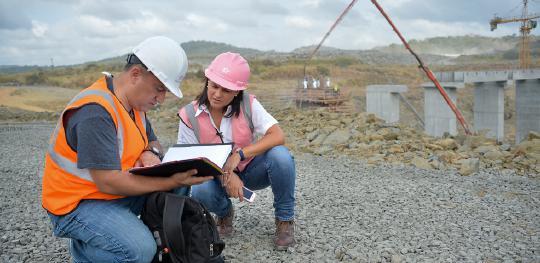
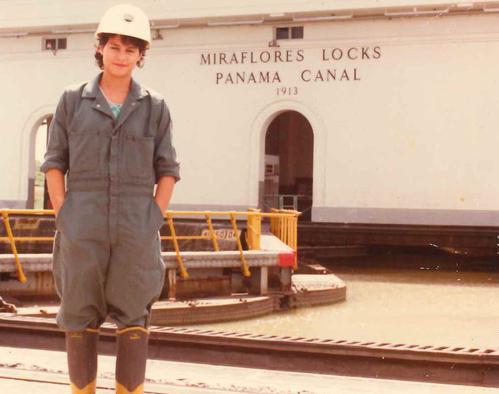
In 2019, I was designated Chief Operating Officer, again becoming the first woman to hold this position. This was extremely rewarding because I was overseeing Canal maritime operations. Interestingly this closed the full circle from planning, to construction, to being in charge of the locks built in 1914 to the new locks built in 2016. I served in this position until March 2023
In 2020 I was appointed Deputy Administrator of the Canal, in addition to my duties as Chief Operating Officer I found this new role very fulfilling as now I would be in the second highest level of management in the Panama Canal. I have to say my professional career has been a journey of much learning and growth.
The maritime industry is primarily maledominated, although this is steadily changing; to what extent do you agree?
It is steadily changing for sure, although, at a very slow pace From my years in the Canal I have a firsthand view of these changes. I can say that in the shipyard I was one of two women in the technical area, I was always selected for promotion by a male supervisor, and in every case, my predecessor was a man I can now look back and see the areas I have been through, when we were only two women, it has changed. The Panama Canal has a workforce of over 8,000 employees 10% are females but only 18% of that 10% is in nontraditional jobs for women.
Describe a professional difficulty you faced and how you overcame it?

When I was appointed as Vice-president of Engineering and had the responsibility of leading the execution of the Panama Canal Expansion there was some skepticism I realized that it’s a lot easier to be recognized and accepted on a technical level as a woman filling a nontraditional job. Filling a role in a technical position is one thing, being considered for a management or leadership position is entirely different.
This was new to me as I had never experienced people doubting my ability to do a job that I was assigned to perform I bought myself a pink hard hat to showcase that a woman could lead a multimillion-dollar project in construction. As such, I continued to demonstrate my dedication, commitment, and professional execution
What is your biggest achievement to date?
I have two great achievements in my career

My biggest having been the Chief Engineer for the Panama Canal Expansion Program, this was a once in a lifetime project. The other, was being appointed as the first female Deputy Administrator of the Panama Canal
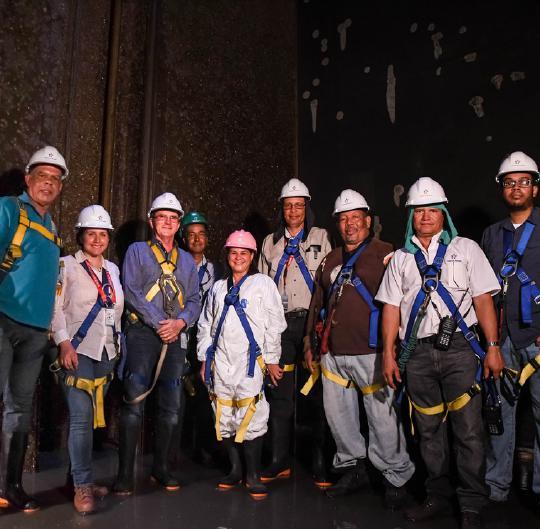
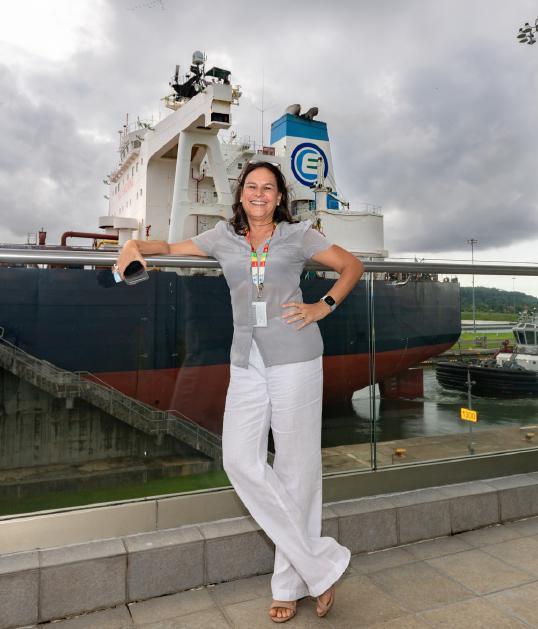
What are the pros and drawbacks of working as a woman?
The pros are you can realize your dreams, you can prove to yourself that you can do what you love and want. It is financially rewarding, and a way to positively influence society. The drawback in a nontraditional job is, I believe you have to work harder than your male counterpart to show your worth. I also believe we are measured by a longer stick than our male counterparts. In addition to your career, there is the more difficult requirement to manage time for yourself and your family. I wouldn’t call it a drawback, but an additional consideration. What is important to consider is that we can only achieve great things with the help and support of others
How much help did you receive from the government and business leaders in developing your career?

First, I was a recipient of a Fulbright Scholarship, which I later declined when I switched career studies from Marine Biology to Marine Engineering. Subsequently, I received another scholarship from the Organization of American States. I also had a student loan from a Panamanian national institution that promotes education (IFARHU). In terms of my professional life, I must say I was mainly helped by my bosses during my career through their teachings, mentoring, and allowing me opportunities
What actions were crucial to your success in your line of work?
Most importantly, humility and learning from others; what to do and what not to do It is imperative that you show professionalism. If you are recognized as a good worker based on your performance, your reputation will open doors. Transparency is key, recognizing errors and learning from them will show that you are accountable for your decisions and actions. Never say no, always try new things and continue learning and growing. Take advantage of the opportunities and challenges that come with them, and give them your best
What suggestions do you have for the next generation of female professionals entering into the maritime industry?
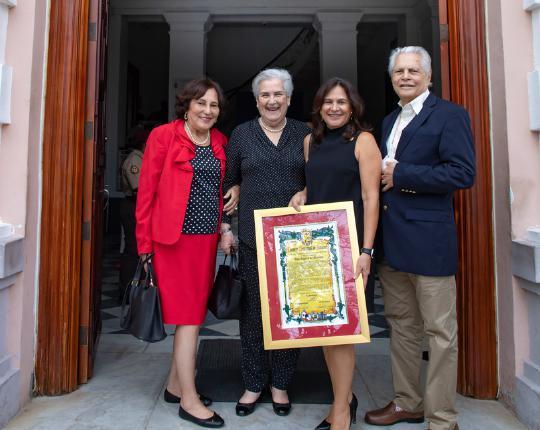
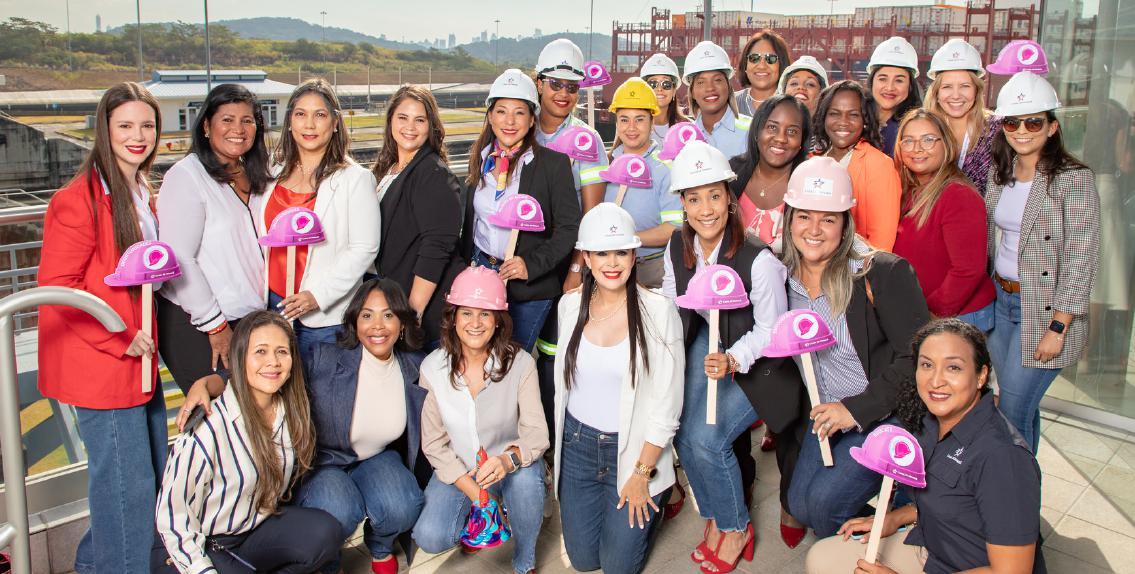
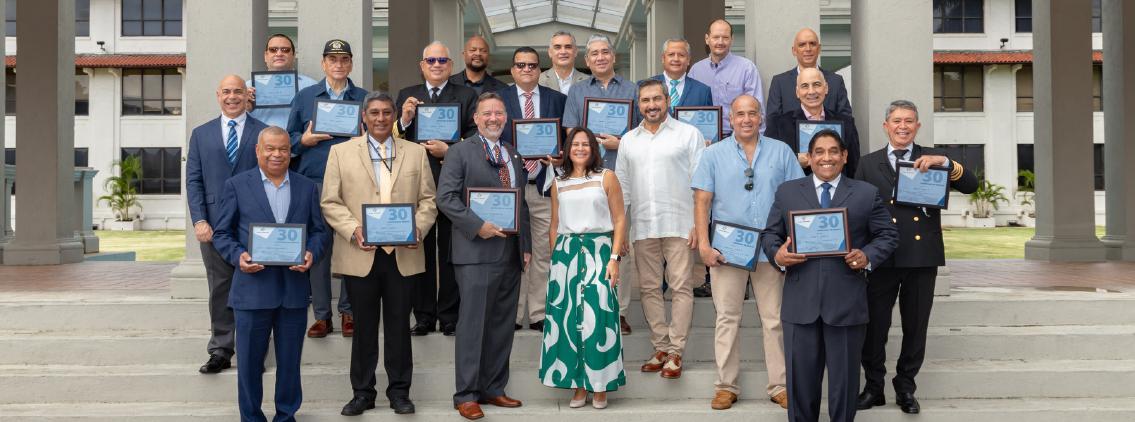

You have to demonstrate confidence in yourself, and prove your worth; do not be afraid to ask for help when needed. A positive attitude is highly valued and technical preparation is vital. Often we underestimate soft skills, They are so important in whatever you do Communication is essential, don’t fall shy of asking any question, there is no such thing as a dumb question. Being a team player will take you much further than going solo.

It is wonderful to see how our pilot SheEO group chat has grown organically over the past three years, from a small group of 5 or so women marine pilots to the 40 women marine pilots we currently have from over 16 different countries and over 30 different ports across the globe.

On this occasion, it is a pleasure to introduce you to Nildeniz Sutcu Sen, a senior marine pilot from Izmit Bay and ports She is Turkey's first women marine pilot, with over ten years of experience. Nildeniz brings a wealth of knowledge and leadership to not only pilotage-related discussions, but also the integration of the human element and behaviours associated with being a great pilot, role model, and inspiration for the next generation of mariners and marine pilots.
One of the things that has stood out for me, since being connected with Nildeniz, is her motivation and passion for marine pilotage. She knows how to set goals and work hard to achieve them, and she's now turning her efforts on inspiring another generation of mariners and ensuring she is able to support
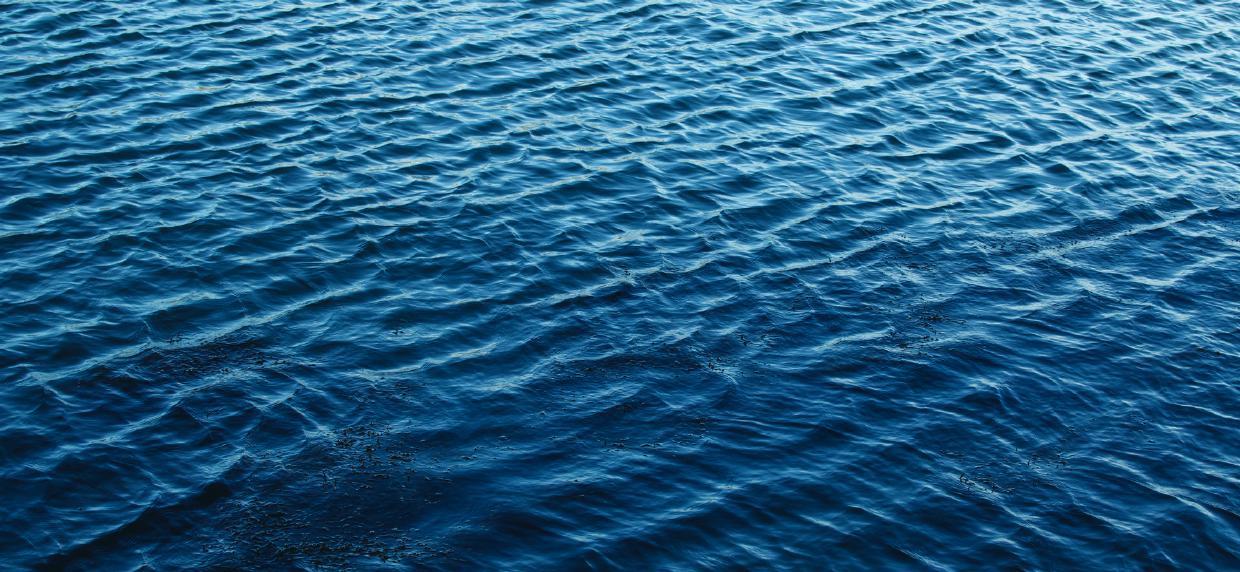
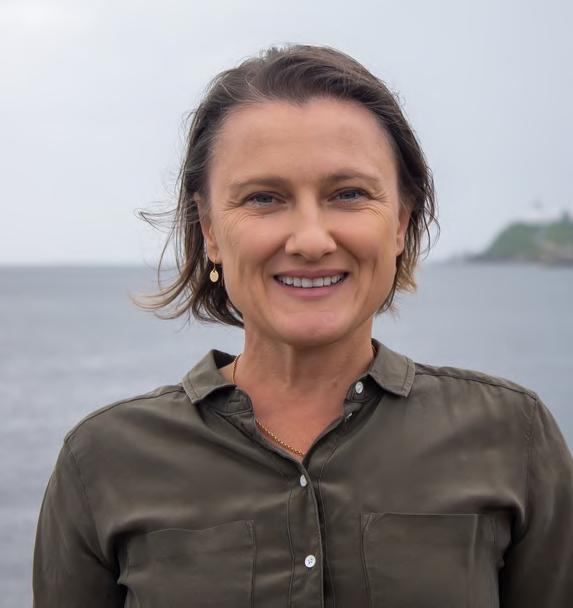

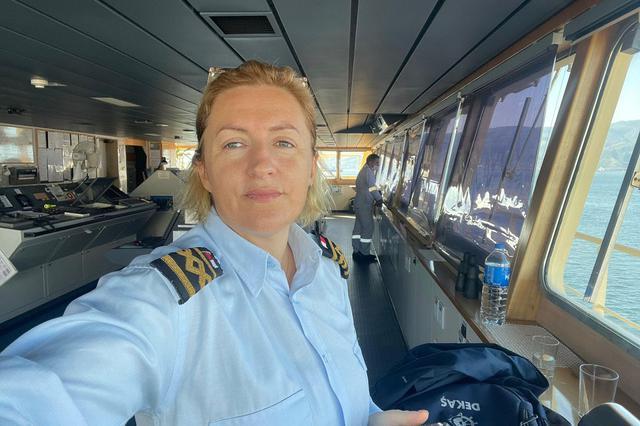
In 1999, I joined the Maritime faculty and 6 out of the 600 students in our class were women, making it the first time that our faculty – ITU Maritime Faculty welcomed women students In 2014, I was employed by Izmit Bay and Port as a pilot, making me Turkey’s first woman pilot.
Despite my lack of awareness and information about the job as a pilot, I selected this profession since I enjoy being at sea. I believe that many people's opinions about women at sea have changed and that more women are now empowered to choose to work at sea I am also striving to put in my best efforts to support them.
I worked at sea for eleven years on various types of chemical and oil tanker ships After earning my Master Unlimited license, I worked as a Captain for a year before becoming a Maritime pilot. I was always curious about this profession and questioned all pilots who visited my ship about their work and the difficulties they might have faced in their job.
By chance, I received a job offer from a colleague who worked in a governmentrelated department 15 days before joining the ship. I got my basic maritime pilotage training at the Maritime Faculty which covered simulator training as well as fundamental maneuvering methods

During my training, I spent 6 months aboard ships at Izmit Bay, where at least 90 ships were
present during the day and night as well. I maneuvered all types of vessels. İzmit Bay has different types of ports such as Containers, General cargo, Chemical, RORO, and Tanker terminals, as well as shipyards, passageways and anchorages. Also, berthing and unberthing activities are carried out here.
Our organization Ankaş/dekaş is a unique Turkish corporation whose shareholders are retired maritime pilots as well as employed maritime pilots. As a result, we have a very user-friendly working system that allows us to operate comfortably We work for 5 days and then take 10 days off. During the 5 days that we work, we stay at our stations which have pilot accommodations.
For organizing pilots to attend vessels for maneuvering, we have a computer-based programme that calculates rest and working hours. At Izmit, we have 77 pilots, working three watches. If the vessel speed is low, the longest passage takes 2 5-5 hours

A bridge was built here in 2016 and the maximum air draught for ships that we assist is 59.4m. Container Ships of 399 meters are the largest size and must lower their mast during passage with additional tug assistance However, maneuvering small ships, as I call them, feels like riding a roller coaster because they do not have additional power and tug assistance and only have an old-style engine and puddle effect
Being a pilot typically involves becoming used to the adrenaline in your system. At this job, I am constantly challenged and expanding my skills because of the variety of ships we handle which means a completely different working style and trying to discover the best, safe, and easy method to do this job.
Moreover, we work with ship crew from different cultures. One’s knowledge is not enough, one must always be fully aware, plan, decide, act, and respond, as well as work effectively with all teams and communicate with them clearly This job, I should tell you, can be addictive.
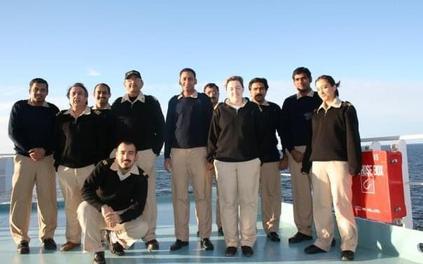

However, it also has a lot of downsides, one of which is attending a ship, climbing a pilot ladder, working varied hours of the day and night, and having to stay away from your family for some time. When discussing this job, it is important to remember that there are always different views
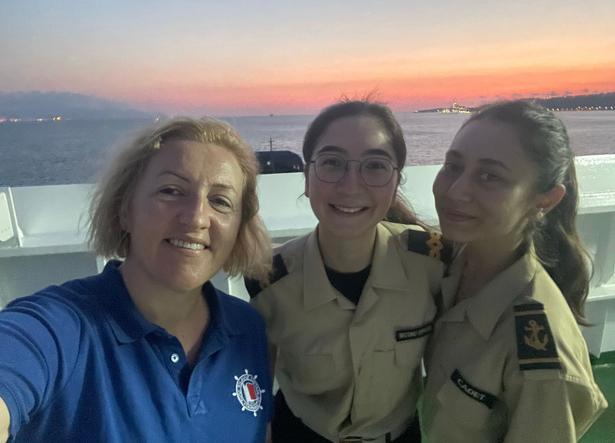

The most challenging and struggling part for me at the beginning was actually the behaviour of colleagues who sometimes ignored me or constantly questioned my choice to be in this profession or doubted my skills for this type of work due to prejudgmental assumptions related to my gender. I was first on the defensive because I didn't know how to deal with these judgments, which I felt were an attack on my existence; nevertheless, I soon realized that it was a waste of energy. My initial negative emotions started to disappear as I worked.
Particularly after having children, I took a fouryear hiatus from work, and it really made me realize how much I value and give importance to little unimportant things at work. I've witnessed a pattern of resistance to change, and we as women in the maritime industry are still considered newcomers by some. As a result, I shifted my focus to my work and selfimprovement. People's perspectives can often change as they interact with you.
My father taught me to appreciate the feeling of being in the sea. I chose this profession because I believe it is suitable for me. Instead of discouraging me from this job, the resistance served as fuel for me to keep going by occasionally slipping into reactivity and seeking guidance. People, in my opinion, should do what they enjoy and are content with. Despite the challenges of this job (which has both wearing and developing sides), I continue because I see the benefits to myself
Inviting more women who want to work as maritime pilots to break all mental barriers. I am aware that supporting one another, sharing experiences, and empowering women for higher positions is a more effective way of dealing with the consequences. I tried to be more active on social media for the same reason as well. When deciding the next step, I receive a lot of support from cadets and officers who have started their journey and want to see their way through their life at sea, as well as some students who at a young age may choose the faculty or this profession.
Turkey recently experienced 2 big earthquakes on February 6th, affecting 11 cities and causing widespread destruction and death. We were far from the earthquake area, but everyone in Turkey was affected, and we are still attempting to aid people by sending supplies

Our companies are also providing pilotage assistance at Skenderun Port, which was also impacted by the earthquake, and the pilot station there has suffered severe damage.
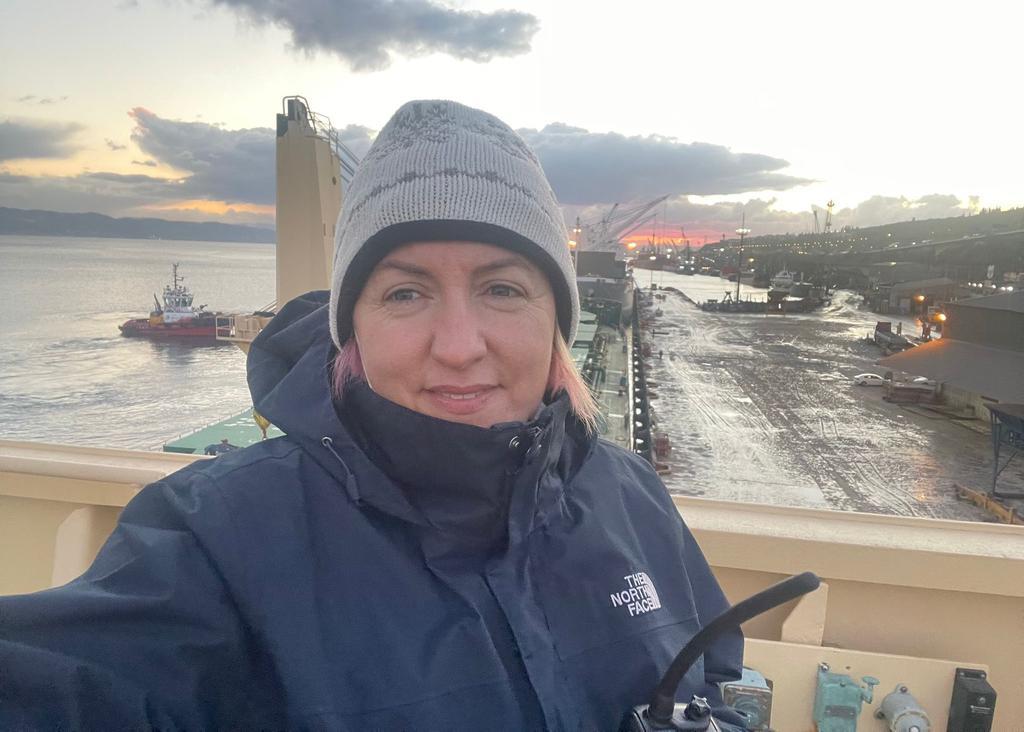
We understand that supplying assistance by sea is much more important because roads are mostly impassable after the earthquake. A lot of assistance has been sent by ships. We have very important work to be done here for humankind, but we underestimate the value of those doing it all over the world.
Seafarers are key workers in disaster situations demonstrating the maritime sector’s ability to be well-organized and respond appropriately.

Board Member - Mumbai Port Authority. Secretary-All India Port & Dock Workers' Federation, Treasurer/ ITF-POC Co-Ordinator (India), Transport and Dock Workers Union, Mumbai


What inspired you to pursue a career in the port industry, and how did you get started in this field?
Many of us are drawn to the sea, but working in a job connected to the sea or at sea is an unattainable dream for many of us. However, when my father, Shri Ramesh G. Desai, worked for the erstwhile Bombay Dock Labour Board, it was the organization's policy to recruit employees' children who passed the examination to work for the Bombay Port Trust (BPT).
Hence, I got the opportunity to work with BPT (Bombay Port Trust). I joined as a “Typist Cum Clerk” in November 1982 while still studying in college doing my First Year B. Com, and it was during the tenure of my two maternity leaves that I was able to complete my graduation in the Commerce faculty.
For the first time in the 150-year history of Mumbai Port Trust, you became the first woman to be elected as a Labour Trustee. How did this happen and how do you feel about it?
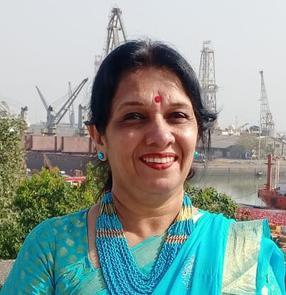
Since 1993 I started actively participating in the Transport & Dock Workers’ Union, Mumbai under the able leadership of great veterans like Com. S.R. Kulkarni, Com. Manohar Kotwal, Com K A Khan and Com K R Prabhudesai I organized many educational activities for women workers and contract workers, port workers, and road transport workers at a local and national level. I was also the first woman
to be elected as a Treasurer receiving the highest votes of 96% despite there being only a 4% women voters membership in the Union!
What does your day-to-day job entail?
I work on all fronts, including the Home Office, Union, Federation, National Centres, and International levels
What are some of the challenges you face as a woman working in the port, and how do you overcome them?
You must face many challenges as a woman!
First and foremost, most women are guilty of giving less time to their children; secondly, women in leadership roles are not always acceptable in the workplace; and thirdly, one must be highly confident and motivated to succeed, and this requires the support of one's family and co-workers, which can be difficult at times.
However, today I can proudly say that I have reached up to the level of being nominated a Board Member (earlier designated as Trustee) of the Mumbai Port Authority. I am the firstever woman to represent Labour on the Board and it created history in Indian Ports / Mumbai Port. For this, I am grateful to the leadership of Bro. Kishor Kotwal President, Bro. Kersi Parekh, Gen. Secy. and our office bearers for their nomination, support, assistance and faith in my abilities. I am also thankful to the Ministry of Shipping, Government of India for approving my nomination as a Board Member.

What advice would you give to other women who are considering a career in the port industry?

A woman should be able to take independent decisions, should have the ability to create a perfect balance between work and family (support) and should also have selfdetermination and a clear vision to leave a mark in this male-dominated industry. If you believe in yourself and are committed, dedicated, and educated and set your goals in place, you will overcome all the hurdles that may cross your path.
How has the port industry evolved over the years, and what changes have you seen during your career?
I am pleased that the proportion of women in the maritime sector has climbed to 15-18% today, compared to 6-8% in 1998, according to an ITF survey. The reasons could be the result of the Government of India's efforts to implement reservations for women in the maritime sector, as well as a concession programme for young women in the maritime sector.
Furthermore, certain Maritime Institutes offer discounted training to women Many trade unions are also motivating women through training and the development of HR Policies for Gender Equality for the youth and women working in the maritime industry

I'd like to share a few examples of how, after the Women's Committee was formed at the national level, under the leadership of Com. P M Mohd Haneef, President, All India Port & Dock Workers' Federation and their affiliated unions in twelve major ports in India, we were able to achieve the following -
Child Care paid leave for 2 years for women employees in their entire tenure of service Ensured the setting up of an Internal Complaints Committee at all the Major Ports for Prevention and Redressal Mechanisms for Sexual Harassment at Workplace

Presently we are campaigning for the ratification of ILO C190 to end violence against women and working on this year’s UN theme of Women's Day - DIGIT ALL:- INNOVATION & TECHNOLOGY for all This will help to reduce the gap of gender imbalance and create a safe working environment for women employees.
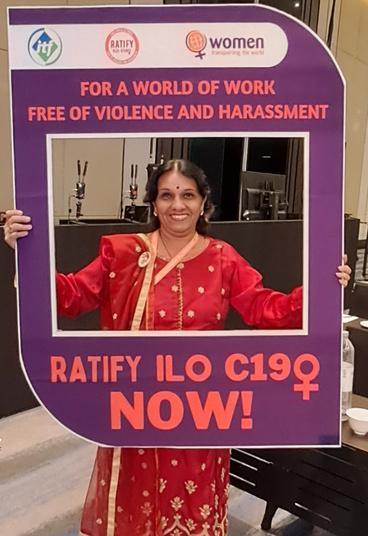
What are your future goals and aspirations for your career in the port, and how do you plan to achieve them?
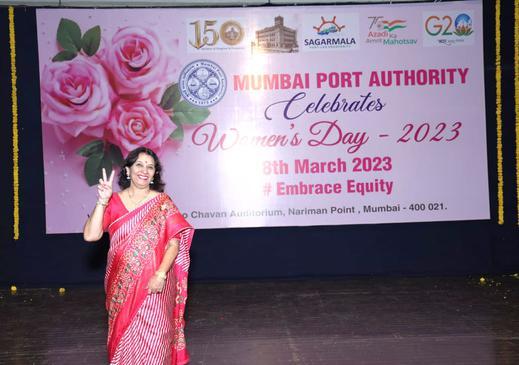
My future goal is to decrease the gender gap and increase the women's ratio in the maritime industry through skill training, implement human resource policies that can offer a safe working environment for working women, and put an end to sexual harassment and domestic violence.
I hope to see more women in the maritime sector and in positions of leadership so that women's issues can be acknowledged and addressed. I am encouraged after observing the improving female ratio in the maritime sector, even if it is slow but steady! Many women are now selecting careers in the maritime industry as pilots, chief officers, seafarer, radio officers, crane operators, and so on I am sure that we will be able to attain gender equality at all levels.
We still have a Long Way to Go! Let us walk together!


In the year 1995, Kalpana Desai was elected unopposed from the Asia-Pacific region as a Member of the International Transport Workers’ Federation (ITF) UK She delivered her speech at ITF CENTENARY CONGRESS held in London which was attended by 3000 delegates from 120 countries. Her speech was globally applauded and many European bulletins and newspapers widely published her speech Since 2008 she has been elected Asia Pacific Regional Committee member of ITF.
Kalpana was also specially invited by the Government of Israel as an Assistant coordinator to attend the conference on the “Role of Labour and Co-operative Movement in national development.”
In 1997, the Government of Maharashtra State honoured her by awarding her the “GUNVANT KAMGAR PURSKAR”. The award was presented to her by the Hon’ble His Excellency Governor Dr P.C. Alexander.
She was also awarded the "Bharat Ratna V. V. Giri" National Award by the Government of India/ILO in 1994 on the occasion of the International Labour Organization's Platinum Jubilee for her essay on the Role of India in ILO

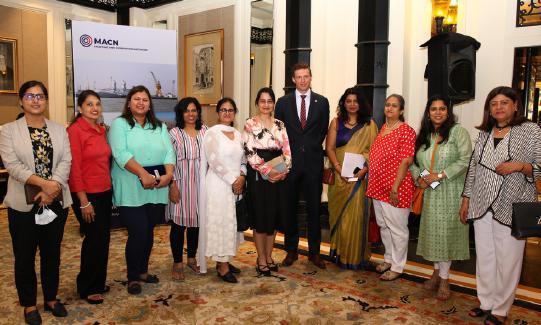
Deepak Shetty, I.R.S. (Retd.), Currently Senior Adviser to the MACN (India) Former Secretary to the Government of India & Director General of Shipping
In this account, Shri Deepak Shetty, I.R.S. (Retd.) provides information on the history and current initiatives of the MACN in India, operational since July 27, 2022. It is committed to eradicating of corruption in the maritime industry and promoting adherence to anti-corruption regulations. Continue reading to find out more about the outstanding work that this organisation is doing.
The Maritime Anti-Corruption Network (MACN) is a multiple - awards winning global organization that is actively working towards the vision of a maritime industry free of all forms of bribery.

The MACN, headquartered in Copenhagen, Denmark, collaborates with the maritime industry, governments, non-governmental organizations, and civil society, internationally. It does so by identifying the root causes of corruption, generating an informed awareness of the challenges faced, implementing the MACN's Anti-Corruption Principles, codeveloping and sharing best practices, providing capacity building tools, and creating a culture of integrity within the maritime ecosystem, worldwide.
The MACN, established in 2011, has now grown to encompass 182 members, drawn from the maritime and logistics supply chain industries across the globe, and represents over 50% of the international shipping tonnage.
The MACN promotes business integrity, anti-

corruption / bribery, ethics, transparency and accountability in the maritime value chain. This has led the MACN to become one of the preeminent examples of collective action to tackle corruption and become a force for good, as a part of the global commons
It is duly recognized by the International Maritime Organization, London, which, in its FAL Circular dated 01.06.22, has urged worldwide shipping companies to report incidents of maritime corruption to the MACN
The 3 mission objectives of the MACN are Collaboration, Collective Action, and Capability Building. The mandate of the MACN is embedded in its 7 Principles viz : Compliance Program Requirements, Risk Assessment, Monitoring & Internal Controls, Due Diligence, Proportionate Procedures, Training & Communications and Reporting, Discipline & Incentives
The MACN recognizes the Government’s commendable efforts to improve business integrity and increase corporate liability. In addition, significant investments have been made by port operators and associated stakeholders across India to improve port efficiency, reduce bottlenecks in maritime trade, bring down dwell time, hasten turnaround time, and cut associated costs.
However, one of the transactional costs entailed, albeit unintended, is illicit demands made across the maritime value chain.
MACN member companies continue to report demands for illegal in-kind / cash payments in connection with port calls. Rejecting such demands can lead to difficulties and delays during merchant shipping transit.
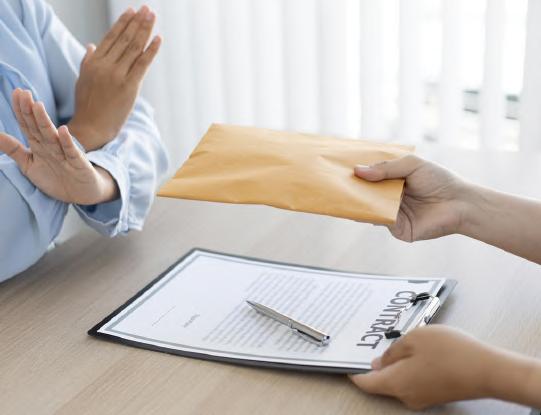
MACN recognizes that these difficulties may be caused, often, by individuals rather than by authorities and institutions, but resolving them requires public-private collective action and awareness sensitization, proactively and consistently.
Some of the key stakeholders representing interface with merchant ships, whose efforts to eliminate corruption in the maritime space, which the MACN seeks to institutionally supplement, are; Customs, Immigration,Port Authorities, Maritime Administrations,Port Health Organization, Port State Control, etc
The MACN-India had its formal national launch in Mumbai on 27th July 2022. Its Team comprises;
Mr. Deepak Shetty, I.R.S.(Retd.), Currently Senior Adviser (India) to the MACN and former Secretary to the Government of India & Director General of Shipping. Mr Soumya Prakash Dalua, Project Manager.
Capt. Rayomand Shroff, Maritime Expert & Helpline In-charge.

The MACN-India India Team is already offering smart governance services, pan-India, such as: A modern technology pivoted Helpline, which is available for ready access by the Ship Captains / Masters, Operating Teams, and Agencies of MACN member-shipping companies for raising to the MACN-India vessel pre-arrival notifications (PANs), which are duly monitored, functional since November 25, 2022.
If on the arrival of the vessel concerned in any Indian port, there is any incident entailing a demand for illegal gratification (cash/kind), the MACN is suitably apprised, including relevant facts of the case and available corroborative evidence (documentary, electronic, etc ), under due diligence.
This Helpline leverages CRM / Salesforce technology Such adverse incidents involving instances of corrupt demands are recorded in the MACN database and promptly escalated, real-time, to the senior public functionaries concerned for an appropriate necessary action thereon at their respective ends and are proactively followed up / pursued with them for proper and effective resolution and consequential feedback thereon, in time –which are then relayed to the complainant.
The MACN analyses (basis an application of data analytics and data mining tools), the

broad strands of causative factors leading to such reported corruption cases, over time.
These may, possibly, be in the form of lack of automation at the points of interface, deficiency in some legal provisions, gaps in some procedures, infirmities in processes, inadequate capacity building, etc.

The MACN endeavours to, basis such data and empirical analysis, formally suggest to the authorities concerned suitable and structured remedial public policy change formulations for consideration for actions.
This is intended as a value-added service towards suggesting systems changes and business process re-engineering on a constructive and positive note. It has already submitted, within the last 7 months since its national launch at end of July 2022, two (2) substantive policy change papers to the Director General of Shipping, Government of India, Mumbai, for consideration for initiating such change action, sustainably
The latter has, in turn, already formally recommended both these proposals to the Chairman, Central Board of Indirect Taxes and Customs, Govt of India, New Delhi, for due consideration - being followed up for their execution.
Access to the MACN member companies of the MACN's Global Port Integrity Program (GPIP) - a risk matrix-based tool duly developed by empirically analysing such incident reporting over the past decade.
This ranks 1,189 ports in 149 countries on corruption perception about them. It enables shipping companies and their marine crew to know the potential levels of corruption risk they may encounter when they call on these ports, including Indian ports, how to effectively prepare themselves to counter the same and adopt suitable dos’ and don’ts.
Customised capacity building and human resource development tools for the cuttingedge level operatives in various organisations across the maritime value chain. These can be delivered online and offline and also subsume modules for the training of trainers (ToT) and public officials.

The MACN-India team has, over these past few months, already been proactively engaged in reaching out, far and wide, to a vast representative array of connected stakeholders, both in the public and private sectors, by holding physical and virtual interactive meetings, presentations, etc
MACN-India is now a part of the India B20 Action Council on ESG in Business, of which good governance in terms of anti-corruption, and inter-alia, is a key component. MACN will be contributing to the outcomes and recommendations of this Action Council. It has already submitted to this Action Council a cogent note mooting the compelling case for and imperative need of incorporating the business integrity and anti-corruption plank for the maritime sector as a critical component of a robust, resilient and sustainable supply chain network as a key recommendation.
The works of the MACN in India are in sync with the clarion call given by the Honourable Prime Minister of India in his address to the nation on the occasion of India’s Independence Day 2022 (15th August) for a ‘zero tolerance’ approach to corruption, pan-India
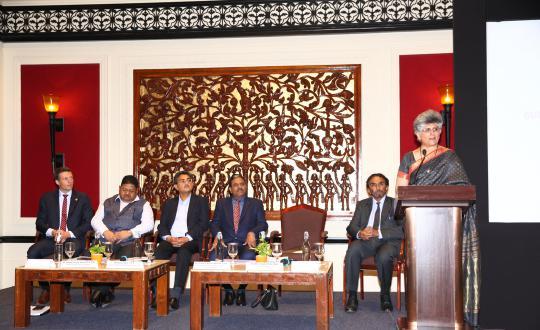
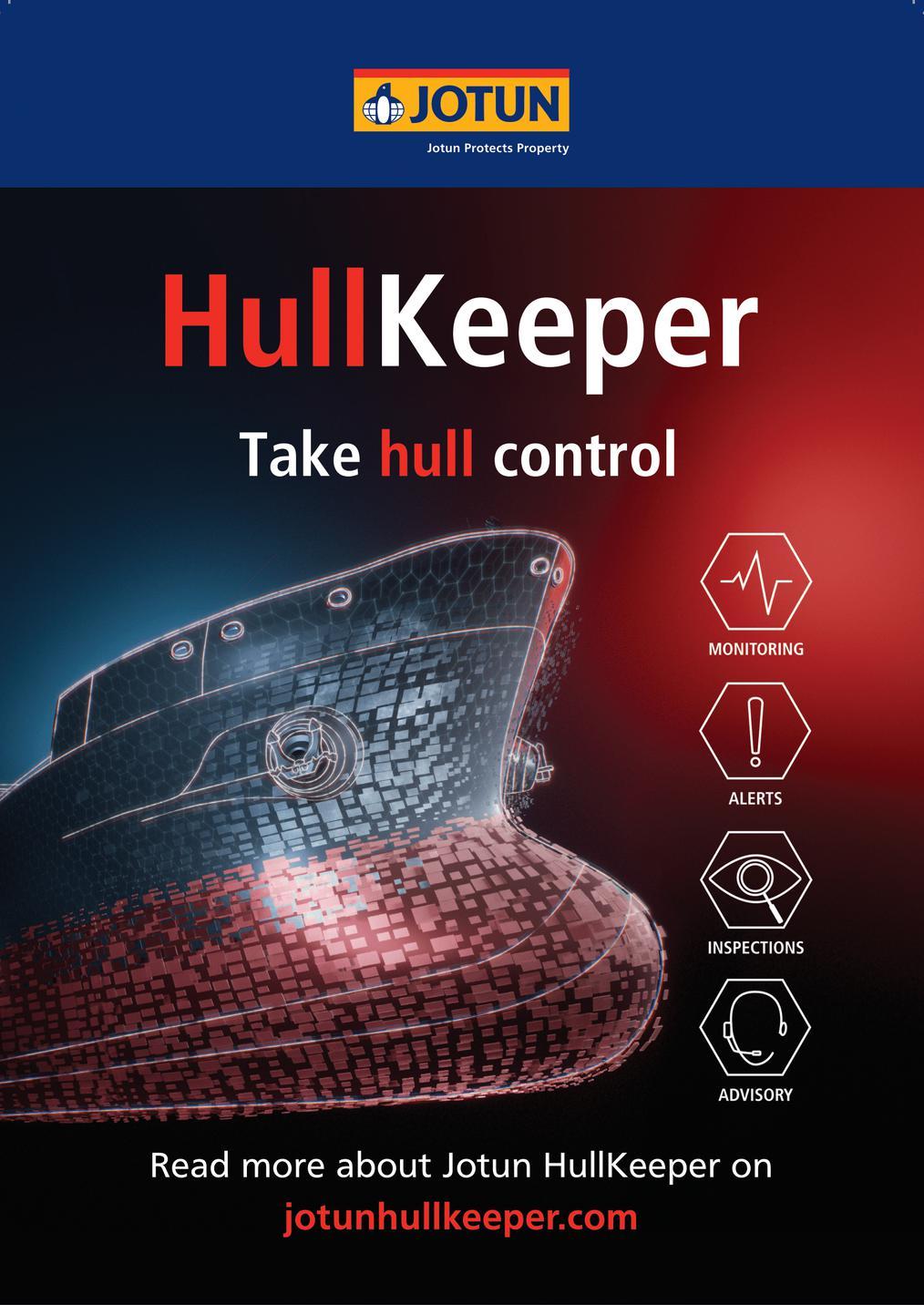
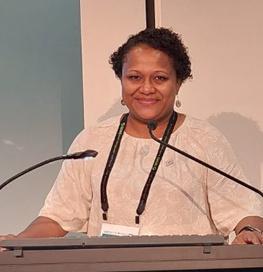
Jane Koi explains why WIMA was founded in Fiji and how it has become a major network for women’s empowerment and growth in the Pacific maritime industry. To discover more, read this intriguing story.
Fiji is the “New York” of the Pacific as some may call it, however, despite being the main hub for trading, women continue to be underrepresented in the maritime sector. Fiji WIMA was launched on September 28th, 2016. At that time, I was the Vice President. From its humble beginnings as a group of fewer than twenty persons, the organization has grown not just in terms of membership but also as a whole. Key to our existence is the members and stakeholders, who have supported our growth
Fiji WIMA was established to -


Create a national network for women in the maritime sector.
Improve levels of competency by focusing on education and knowledge by strengthening the educational and training opportunities in the state, region, and international maritime sector. Establish partnerships with international and regional organizations, such as IMO, SPC, WMU, and other government agencies, private companies, and regional groups in the implementation of its purpose.
There have been many challenges that we have overcome but some are still works in
progress. One issue that we continue to face is the lack of women in leadership roles in the maritime industry as well as the lack of women mentors or role models. At the moment, part of our key advocacy is the promotion of careers in the maritime sector for young women. It is not a regular occurrence that we hear of young Pacific women who want to become ship captains or work in the maritime sector. Many often choose to become nurses or teachers etc. This is of course also attributed to the harmful stereotypes towards women Hence, as an association, it is something we have taken on board in trying to promote the maritime sector as a career choice.
voyage
Our members consist of both onshore and offshore professionals. We are a non-political organisation and have always had a good working relationship with our government Our membership is open to all gender and people from all walks of life including men. We recognize that the fight against gender inequality requires a society-wide approach, making it important to include men in the
realization of our goals This is in keeping with Fiji WIMA's commitment to achieving the UN's Sustainable Development Goal (SDG) 5.
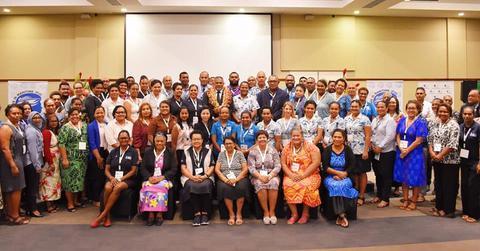
In the past, we have conducted training for our members which ranges from creating awareness of mental health to a deeper understanding of gender-based violence in the workplace. It is through some of this training that we realized the need for more gendertransformative changes in our maritime sector.
For instance, in Fiji, it is mandatory by law for employers to develop their own prevention of sexual harassment policy However, in the past, we have seen participants revealing a lack of policy and stronger enforcement in regards to addressing this, and it is extremely disturbing that we continue to see this, which shows the laxity of concerted efforts into gender action

The disruption caused by COVID-19 has pushed a lot of us into the digital space. What the mass might not have seen was despite most flights being cancelled during the pandemic, ships continued to carry essentials ranging from medicines to food amongst other things.
During this time, most of us still attend work with much higher expectations from employers Technology plays a crucial role in bridging the gap in terms of the unthinkable and unreachable and it is something that we cannot afford to let go of.

As a network, the Fiji WIMA has its own social media pages and chatgroups to connect with each other which has simply made our work easier. Fiji WIMA has in the past made most of its advocacy online which is often captured by the local media and we have also seen a good amount of interest from fellow women in Maritime who are interested in joining the network. There's no better way than to be involved in digital feminism in this day and era
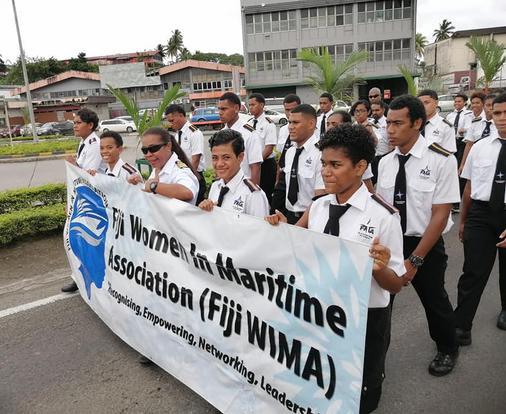
In the Pacific, it is very important that any development discourse takes into account the social and cultural factors that might affect or hinder development. On the other hand, we can actually put certain cultural aspects to good use
The concept of communalism – sharing, and caring is very much evident in our modus operandi as a professional family Over the years we have witnessed members who have graduated from the prestigious World Maritime University, Australian universities, and also from the University of the South Pacific through a partnership with USAID The USAID partnership was a big win for us given that they are now sponsoring our second cohort for the Certificate in Project Management course. With this, we congratulate Ms. Laisani Tagilala who has been accepted to the Maritime SheEO Leadership Accelerator Program.
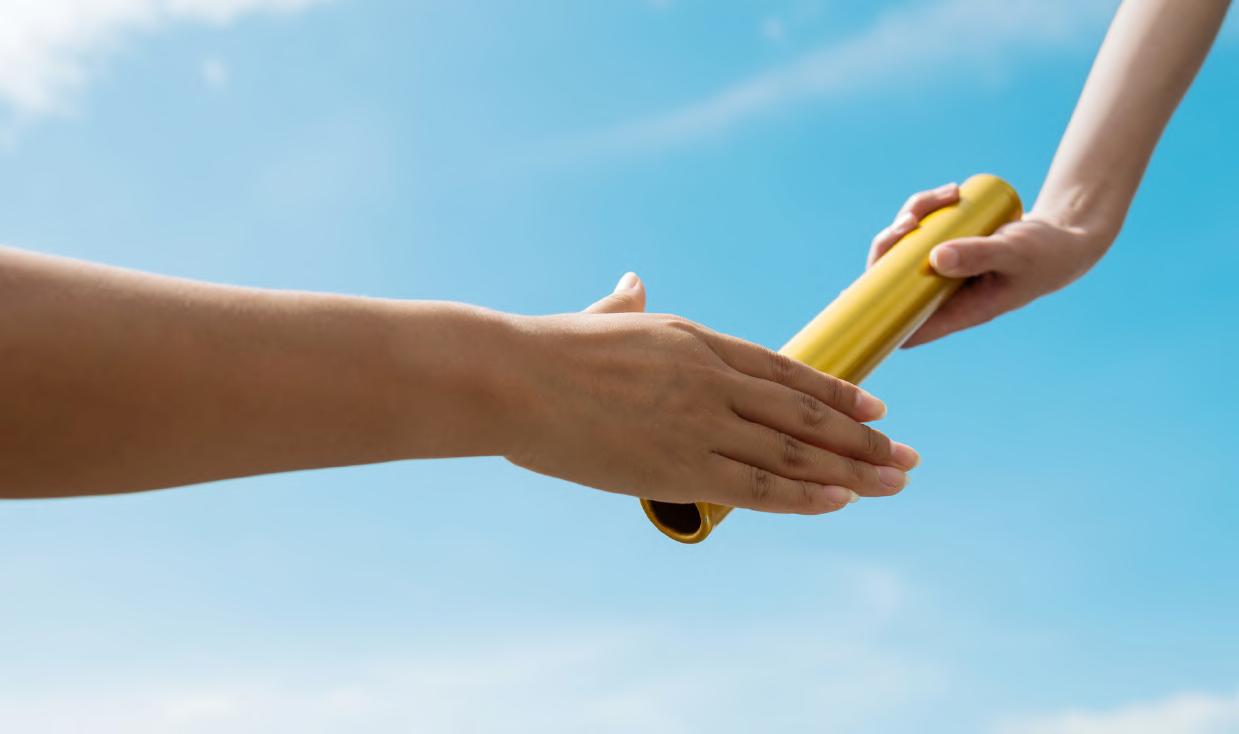
In this interview, Krupa Modi and her father discuss their growing logistic business, how they work together to achieve excellence, how they address issues, and what the father thinks about a daughter joining the family business.
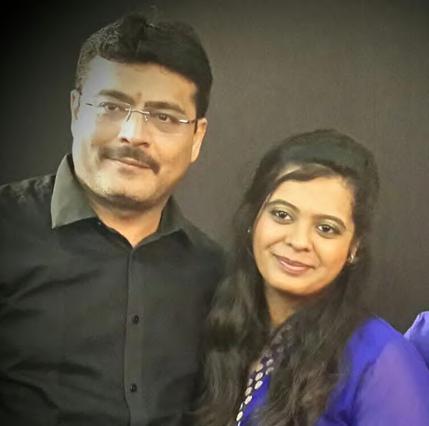
Krupa, please tell us about your educational background and how long you have been working with your father?

As someone who has grown up in a family business, I have always been fascinated by logistics and the intricacies involved in managing the supply chain. From a young age, I would listen to conversations between my father, uncles, and grandfather about business operations during dinner table discussions,

and this sparked a keen interest in me Upon completing my Bachelor’s in Business Administration with Marketing as my major subject from Pandit Deendayal Energy University in May 2021, I made the decision to expand my knowledge by pursuing a Masters’ degree in Supply Chain Management from the University of Texas at Dallas. I will be graduating this year, and I am excited to bring the knowledge and skills that I have gained back to our family business.
How did you decide to get into the family business?
Our family business has been operating in the logistics industry for over 20 years, and I have been able to observe the day-to-day operations and decision-making processes firsthand. However, I believe that gaining industry experience outside of our family business can provide valuable insights that can help our business to grow and flourish. Therefore, I have decided not to join our family business fulltime just yet Instead, I am looking forward to gaining industry experience here in the United States, which can be used to bring innovative and fresh ideas to our business back home. I believe that this is the best way to ensure that our family business remains competitive in a constantly evolving market.

Mr. Modi, please tell us what inspired you to start a business and how did you get started. How do you feel about Krupa joining the business? Are there other family members in the business as well?
Before entering the logistics industry, I worked alongside my father in our family business of Bauxite mining. We faced significant logistical challenges in the transportation of our mineral cargo. In my quest for a solution, I began exploring alternative modes of transportation beyond the traditional road and rail options.
After extensive research, I discovered the benefits of the first coastal shipping
movement and partnered with pioneer Shreyas Shipping in 2003. During my research, I realized that logistics was a pain point for many industries, including agriculture, mining, and industrial goods Given the vast transportation requirements in Gujarat, I decided to start a logistics company that would offer unique "Road-Sea-Road" multimodal solutions.
With the support of my father and brothers, I founded Pushpak Logistics, which has become the leader in the Indian coastal shipping trade over the past two decades. We serve over 5000 shippers and consignees from eight states, and we have a large team of 350 dedicated members. Our success is a testament to our commitment to providing exceptional logistics services to our clients.

We are extremely proud to have Krupa as a part of our team. She developed a keen interest in logistics and supply chain over the past decade, and during her graduation days, she worked with us and shared her valuable insights. Krupa's dedication and passion for this field led her to pursue a post-graduation degree in SCM in the US, and we are eagerly awaiting her return to take on a leadership role in our company With her extensive knowledge and expertise, we plan to expand our business beyond forwarding and become a true leading intermodal operator in India.
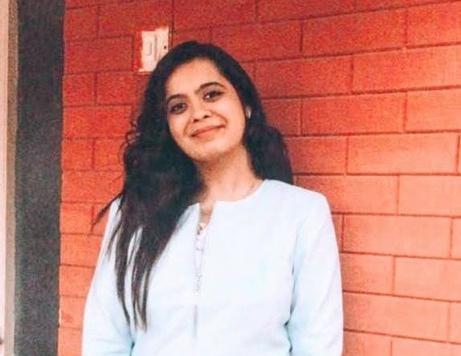
There are many father-sons in business but few father-daughters or father-sons and daughters. What are your thoughts on daughters joining the business? In recent times, the landscape has shifted, and more women are taking on leadership positions in businesses. As a result, fatherdaughter business partnerships are increasing. Having daughters join the family business can be highly beneficial, both for the business and for the family.
Firstly, it brings diversity and new perspectives to the table as daughters are just as likely to have degrees in business, engineering, or other fields that can bring fresh ideas and a different perspective to the business. Women are generally known for their emotional intelligence and interpersonal skills, which can help the business to expand its customer base and build stronger relationships with suppliers and employees. Additionally, women tend to be more risk-averse, which can be a positive factor when making strategic decisions.
Secondly, it can help to bridge the gender gap in the workplace. Having female leaders in a traditionally male-dominated industry sends a message to other women that they too can aspire to leadership positions This can help to create a more inclusive workplace and lead to increased retention of female employees. Thirdly, it can be an opportunity for fathers to share their knowledge and experience with their daughters, passing on the family legacy and ensuring the continuity of the business. This can also help to foster stronger family relationships, as working together can be a bonding experience
However, it is important to note that including daughters in the business should not be solely based on gender. The daughters must have the necessary skills, qualifications, and interest in the business to be successful. They should be given the same opportunities as their male siblings and be judged on their merit. Overall, I do believe that women are the best managers
in the world as they are better listeners, have abundant patience level and are great communicators.

What are the strengths that each of you brings to the business?
Our combined experience and education bring a unique set of strengths to our family business in the logistics industry. With over 20 years of experience, Dad has built a vast network of relationships with suppliers and customers, as well as a deep understanding of industry trends and regulations. This practical knowledge is invaluable in guiding the overall direction of the business, making strategic decisions, and mentoring younger employees
On the other hand, my Master’s degree in SCM provides me with a fresh perspective on the latest trends and best practices in the industry. I have developed expertise in areas such as logistics management, inventory control, and supply chain optimization, which can help to streamline operations, reduce costs, and improve efficiency.
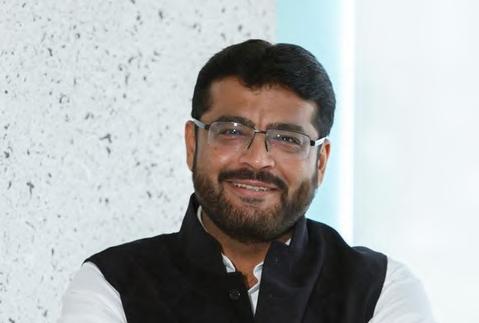
What are the benefits of working with a family member, and how does it impact your business?
Working with a family member can offer numerous benefits for a logistics business. One of the primary benefits is the shared sense of purpose and commitment to the success of the business. Family members are often deeply

invested in the business and have a personal stake in its success, which can lead to a higher level of dedication and motivation. Another benefit is the ability to develop a strong culture within the business
As family members, there is often a shared set of values, traditions, and beliefs that can be incorporated into the business culture. This can help to create a cohesive and unified team that is aligned around a shared vision for the business. Working with family members can also bring a level of trust and transparency that may not exist in other business partnerships.
Family members often have a deep understanding of each other's strengths and weaknesses, which can be leveraged to create a more effective team.
Additionally, because of the personal relationship, family members may be more likely to communicate openly and honestly, which can lead to more effective decisionmaking
However, it is important to recognize that working with family members can also present unique challenges Family dynamics can sometimes complicate business relationships, and it can be difficult to separate personal issues from business decisions.
Additionally, there may be differences in opinion or approach that can lead to disagreements or conflicts. To mitigate these challenges, it is important to establish clear boundaries and roles within the business. Family members should have a clear understanding of their responsibilities and the expectations for their performance.
How do you handle disagreements or conflicts in your business partnership?
Handling disagreements or conflicts in a business partnership is a critical aspect of maintaining a healthy and successful


relationship As a father-daughter team in the logistics business, we have learned over time that disagreements and conflicts are inevitable, but how we handle them is what sets us apart
First and foremost, we always prioritize open and honest communication. We make sure to listen to each other's perspectives and concerns without interrupting or becoming defensive. We give each other the space to express our thoughts and feelings freely, and we never take any comments or feedback personally.
Instead, we see it as an opportunity to learn from each other and grow as a team. Once we have had the chance to share our viewpoints, we work together to find common ground and identify a solution that works for both of us We do not believe in forcing our opinions on each other or making decisions based on one person's preference alone. Instead, we strive to find a compromise that benefits the business as a whole
Another key aspect of handling conflicts is recognizing when it's time to bring in a thirdparty mediator As a family business, we have the added challenge of balancing personal relationships with business decisions, and sometimes this can create a difficult situation. In such cases, we bring in my uncle or Grandfather to help us work through the issue objectively and find a mutually agreeable solution.
Our goal for the future is to become the leading "Intermodal Service Provider" in India by 2030. We plan to achieve this by offering a seamless end-to-end solution for our customers, which includes Road, Rail, Coastal, and Short-Sea, shipping operators. We also plan to cater to niche supply chain requirements to provide a tailored solution for our clients.
In March 2023, we announced our first ever community - a community which acts as a safe haven to support the growth of women on their journey towards being leaders. Members of this community have the opportunity to connect with women from around the world and learn from each other. We celebrate the wins of these women, discuss issues, and upskill them towards greater growth.
We asked our community members
Here are their responses:
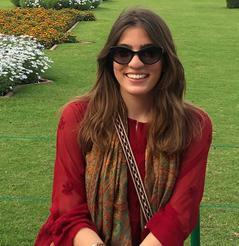
Being a woman in the maritime industry is like sailing against the windit might be challenging, but it fuels us to break barriers, navigate uncharted waters and inspire others to follow our journey.


Being a woman in maritime is reading the poem “why is a ship called a she” in shipping offices as an impressionable but enthusiastic student and immediately thinking to yourself, “well, let’s make a change”

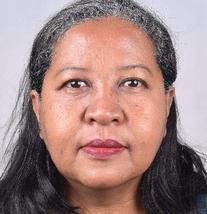
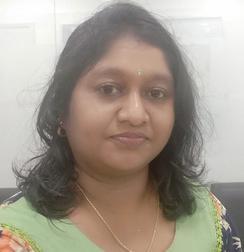

From being referred to "seafaring" as a male-dominant profession to a stage where the marine industry itself makes its own plans to have more women joining in this wonderful industry means all the lady pioneers are to be congratulated.
The fact that so many men professionally and personally chose to help us not just fulfill our dream to be a mariner on a ship but also in continuing to support us for a job ashore to challenge us to newer roles means we are with the right people at the right time.
From walking alone on a gangway to joining a ship to being with a group full of SheEO means this tribe is here to stay.
Being a woman in maritime is being a trailblazer. You shine in a world that still struggles to trust women to bring a meaningful contribution to the table. You break barriers and leave a path for others to follow. It means you are strong, determined, competent but you also know your weaknesses and do not refuse a helping hand when needed. It also means you are a team player, knowing that all hands on deck gets the job done and, you are proud to be part of a community that is a game changer in the maritime sector.
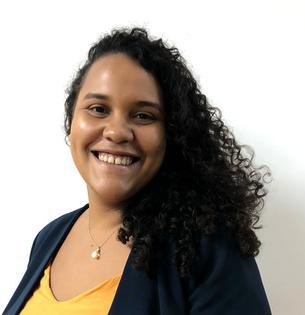
Being a woman in maritime does not only mean crossing ports and frontiers. It also means crossing barriers, barriers of gender inequality in a business platform majority dominated by men, it means a restless effort in order to achieve its goals, and means empowerment and inspiration. Seeing a woman in maritime being masters, lawyers or head of operations and many other crucial occupations which are key for this complex and gratifying gear is one way to show that we can be anywhere we want and we can join forces and lift up other women to be there as well.

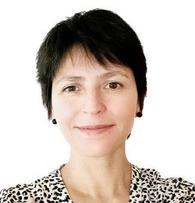
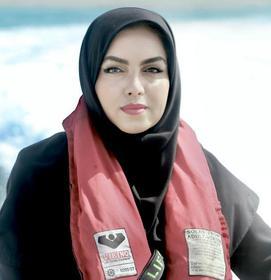


It is true that currently we women are quantitatively half of the maritime community, but qualitatively, we are the best. The time has come for us women working in different areas of the maritime industry to write our own success stories in the history of the world's maritime industry.
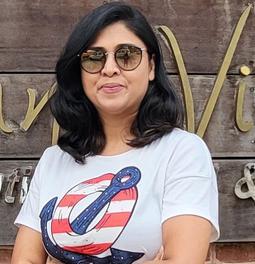
Being a woman in Shipping, to me, resembles Motherhood. Like in our own families, we today share the vision and are an equal part of the growth of the shipping industry. We, the women today are the role models in various facets/roles, sharing the vision of sustainable shipping. There will be times we struggle, but like a mother we never quit from our responsibilities. Every time we struggle, we mold ourselves stronger for new voyages in this industry. It stands strong like a hurricane in its perfect power.
We are successfully breaking the taboo of Shipping being a male dominated arena, we share “the ground and the sea” with full confidence and celebrate our victories. Shipping industry has given amazing opportunities to several women around the world, and we take this passion with pride and great sense of integrity.
Being a woman in maritime involves navigating through unique challenges, seizing opportunities, promoting diversity and inclusion, and contributing to the maritime industry in meaningful ways Women in maritime are breaking stereotypes, making significant strides, and shaping the future of the industry.

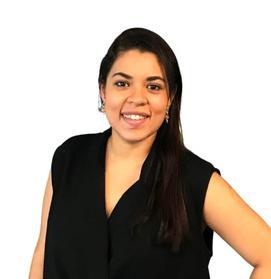
Being a woman in maritime is a total breakthrough. Is a path that can only be walked with the heart. When you start with it you would hardly know where it might take you but you would still go through it either way; then you realize your braveness is not only for you but the others coming behind you and that makes it just more than worth it.



Being a woman in maritime industry we face unique challenges due to its historical male dominance. But, we believe in our skills and knowledge, whether it's as a lawyer, seafarer, or business manager. Underestimation motivates us to prove them wrong and excel in our roles. Despite these challenges, being a woman in maritime presents opportunities to make a difference, bring new perspectives and be part of a dynamic and constantly evolving global industry. We navigate a complex industry while bringing our own unique skills and strengths to the table... making it a rewarding experience.
Reminds me of one of my fav Poems by Maya Angelou (I will add few lines just to not make it too long).
“You may shoot me with your words, You may cut me with your eyes, You may kill me with your hatefulness, But still, like air, I’ll rise ”
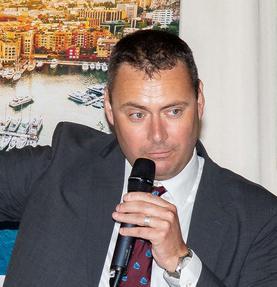 Editorial Director,
Editorial Director,


Sam Chambers, Editorial Director at Splash 24/7, discusses in this account how maritime media companies should encourage diversity and inclusivity among their workforce and the maritime sector as a whole The actions his publication takes to encourage diversity are also mentioned To learn more, keep reading
Improving diversity in the maritime industry is a complex issue that requires a multi-faceted approach.
Maritime media has a powerful role to play in promoting diversity and inclusion in our industry
At Splash, we regularly carry reports on progress - or the lack thereof - in making the maritime workforce more diverse and inclusive. Also, I am always heartened that these types of stories are keenly read, there is a clear interest in the topic.
Media can represent a diverse range of people in their programming and content, including people of different races, genders, sexual orientations, and abilities. This can help combat stereotypes and promote inclusivity.
Media organisations can ensure they have diverse hiring practices, including recruitment and promotion strategies that ensure opportunities for people from underrepresented backgrounds
Magazines and news sites that care can create authentic and nuanced portrayals of diverse individuals and communities, rather than relying on stereotypes or shallow portrayals
Media can also partner with and support diverse organisations and communities to ensure their perspectives are represented accurately, something Splash is always willing to seek out. This extends to the events business, something most media organisations tend to enter.
I like the fact that some of the most prized speaker names in the conference business - the Cargills of this world - will refuse to speak at events where there is not enough diverse representation on stage Shipping events, which have long been the most staid, repetitive showcases of our industry, will have to change as more speakers turn their backs on old school organisers.
Media organisations can provide training and education to their staff on diversity issues, including unconscious bias, cultural competency, and sensitivity.
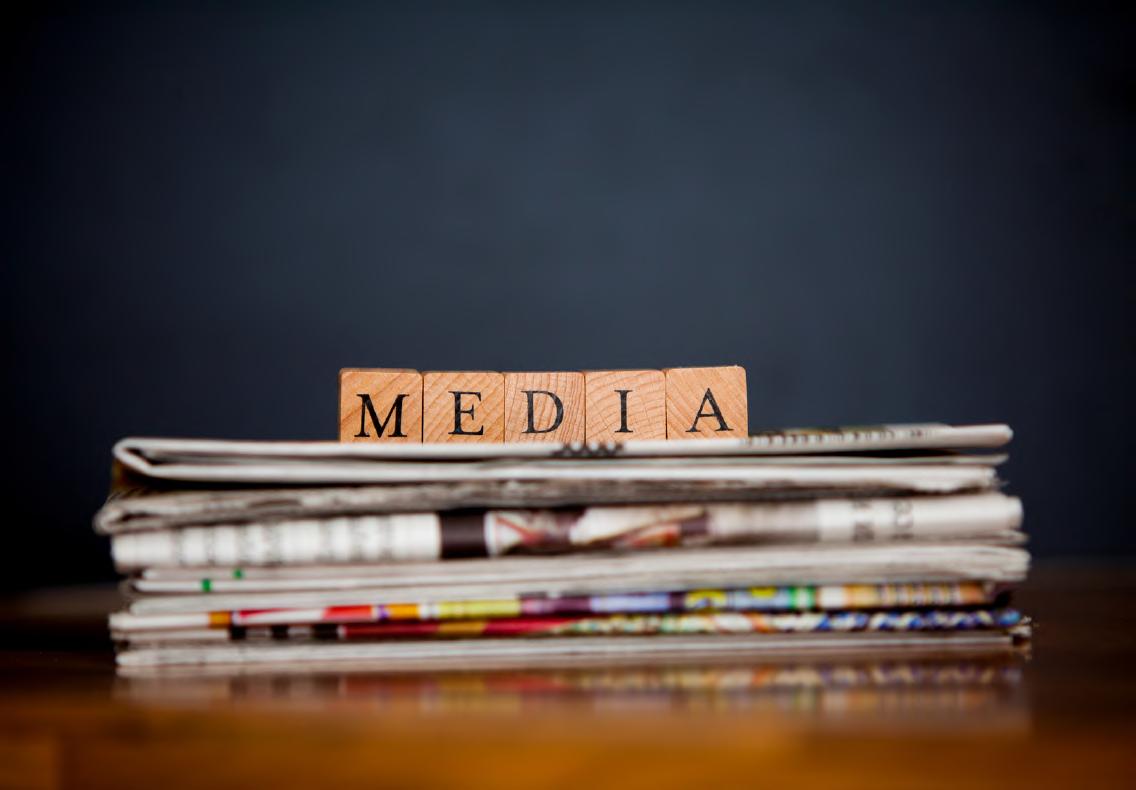
The maritime media can hold themselves accountable for promoting diversity and inclusion in their work and hold other organisations and individuals accountable when they perpetuate harmful stereotypes or engage in discriminatory practices.
Another thing we like to do at Splash is to provoke debate, something we do via social media, and also, crucially, via surveys. Our MarPolls, quarterly surveys carried online and in print, regularly carry human resources questions, which spark a vast range of opinions from across the world. Being a soapbox to thrash out issues is a useful medium in the shipping industry
Overall, media has a powerful platform to promote diversity and inclusion, and it's essential that maritime media organisations use their influence to help build a more inclusive and equitable society.

In 23 years of maritime reporting, I can honestly state that how reporters report on HR issues in shipping has changed dramatically, maritime’s old school recruitment policies are being called out by us and many of our peers day in, day out

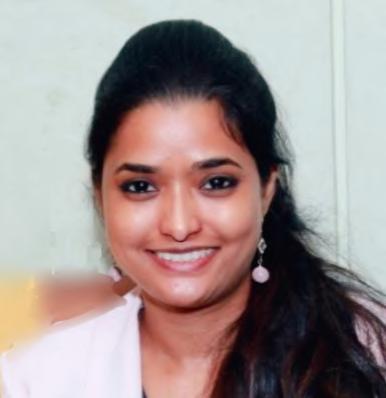
Care Solutions (India) Pvt Ltd


Priyanka Gupta tells us about the introduction of the "Anglo-Eastern Women of Seas" event and the Company's attempts to promote gender diversity, equity, and inclusion in this narrative. Furthermore, the company has taken initiatives to safeguard the safety and well-being of its female seafarers.
After nail-biting days of the pandemic, AngloEastern Ship Management resumed its Annual Seminar, this time a week-long mega event in February 2023.
From Owners to Managers, outstanding minds to over 1500 ship crew (seafarers), the event was indeed a great start to the year, but there's much more to say.
A proud moment for the organisation was the launch of Anglo-Eastern Women of Seas (AWOS) with a one-day workshop for female seafarers, cadets, and trainee cadets from the academy.
An initiative, organised by the Wellbeing team at Anglo-Eastern, was soft-launched online last year on International Women’s Day (March 8th) and attended by more than 500 female seafarers, cadets, and seafarer wives
A step in making an impressive gain in diversity, equity, and inclusion, particularly in the gender diversity segment. This event focused on promoting the need for a larger and more diverse talent pool of Female seafarers. A humble message to the male-
dominated industry is to accept and recognise Female Seafarers as equals. The event was attended by 35 female seafarers and cadets, including cadets currently studying at the AEMA academy
The inauguration was done with the lighting of the lamp by the group MD of Marine HR Capt. Vinay Singh, CHRO Michael Sandaluk, Wellbeing General Manager Priyanka Gupta, and special guest Sanjam Sahi Gupta, Director of Sitara Shipping and founder of Maritime SheEO.
The opening speech was delivered by Capt. Singh, which was followed by Michael Sandaluk, Priyanka Gupta, and Senior Manager – Ship Management Processes, Technical Department, Marlene Riise
A brief presentation on well-being and DEI initiatives were conducted by the Welfare Assistant Manager Trusha Buthello and Wellbeing Officer Sheldon Gonsalvez
A real debate in the form of a panel discussion was the need of the hour, in order to find solutions to the many challenges faced by women in physically challenged occupations such as those in the maritime industry Gender mainstreaming, accelerating women’s careers in Maritime, revision in the policies, and creating a plethora of opportunities, were some of the predominant topics debated.
The panelists were:
Sanjam Sahi Gupta, Maritime SheEO Founder
Abheepsa Gupta, Senior Commander of B787 Dreamliners for AirIndia
Joana Kwok, the first female C/E in AngloEastern and Hong Kong
Supriya Doke, C/E and core member of AEFPC

Dr Delna Shroff, Senior Psychologist at AEMTC
Capt. Anand Rai, Marine HR Manager

Post lunch, Group Communications Manager, Melissa Otto delivered a powerful and thought-provoking talk on gender stereotypes and breaking the mould, with a special focus on negatively used female-specific connotations by today’s society With examples and elaborations on how women should not make themselves feel inferior to their superiors but stand equally with all especially their male peers.
This was followed by a session on Nutrition for Women while onboard by Dr. Pooja Sharma (Nutritionist). A weight management and
lifestyle expert, Dr Pooja gave a few insights such as eating less amount of carbs and eating more protein which should be paired with the right exercises. Sharing diet tips, she encouraged women seafarers to consume more dry fruits and healthy seeds that help to boost the immunity system.
The workshop was concluded with a strong message by Brenda Hojgaard, entrepreneur (October 18) and wife of CEO Bjorn Hojgaard, with an emphasis on gender diversity, equity, and inclusion.
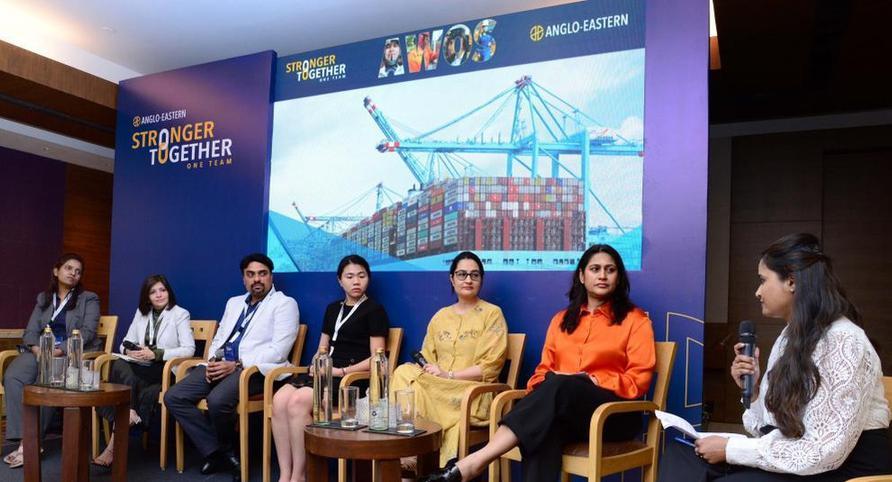
Awos!! It underscored the significance of making a strong and inclusive working environment that values gender diversity and empowers women to pursue this field as a career.
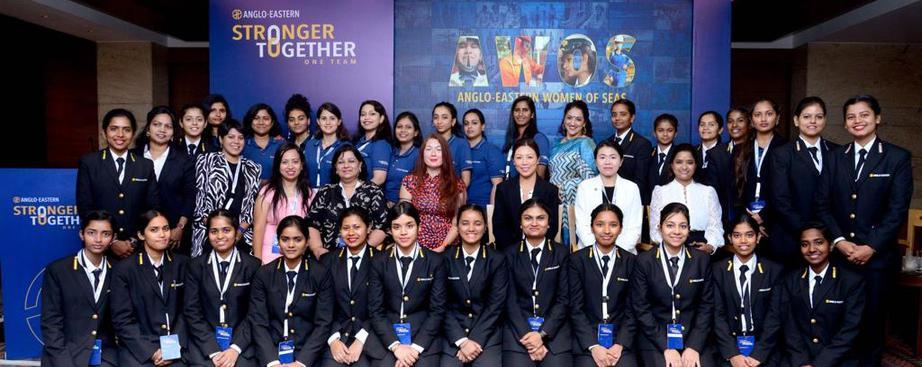
I'm very happy to be a member of this organisation, which has taken the initiative in promoting gender equality in the maritime industry, as well as introducing mentorship programmes, training opportunities, and new networking events.
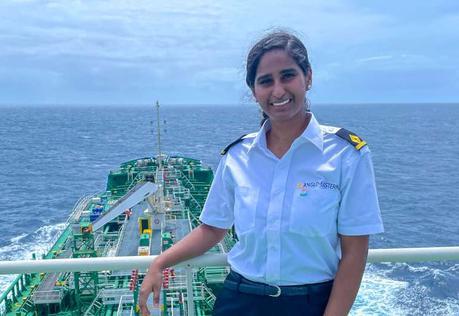
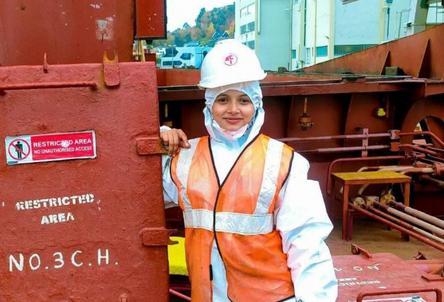


A creative and well-being initiative of AngloEastern Women of Seas, or as we know it AWOS, is one among the many baby steps that have been taken to encourage and promote our women in the industry. The AWOS seminar conducted in February was a success, being the first ever seminar for women The enthusiasm of our ladies was very motivational. The speakers gave us insightful things.
Shortly followed by the virtual session on International Women’s Day, the theme of which was Embrace Equity.
I was ecstatically happy about this concept because this is what we strive for in the days to come It was an amazing experience seeing our female colleagues coming together both from the seafaring and shore staff, sharing our work-life experience and the fun interactive activities conducted. After the session, to me, Embracing Equity was also about embracing our individuality.
Kavya Maurya, CDTMy batchmates and I would wonder if we could ever get a platform to talk about us - women seafarers and the petty hurdles or challenges we face every day onboard, and this AWOS seminar/workshop has been the answer to our questions
It was a very good opportunity for us to meet and interact with so many empowered ladies who shared their different sailing experiences which boosted our morale
Yes, I agree this is just a start and there is a long way to go, but I truly appreciate and agree that this is the best start that could have possibly happened
Today, we are 189 and counting ahead progressively and I am sure the numbers will be doubled by 2025, as we have all dreamt about.
A few key points and initiatives taken by AESM to promote women seafarers in the industry are giving well-deserved promotions upon complying with the matrix, providing us with a separate joining kit and introducing new policies for zero tolerance towards sexual harassment including immediate helpline numbers for women seafarers.
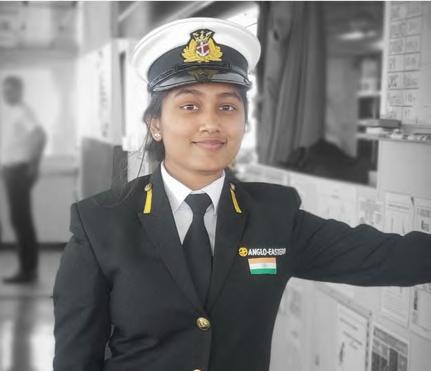
Meeting with a dietician was really beneficial, as it helped a lot of ladies present for the seminar to take care of and improve their health, mental well-being, and the problems we deal with when onboard as PCODs.
The journey of 3 years with this highly profiled family, AESM has been very comforting and knowledgeable.

I will continue to serve AESM for many years to come. I can surely say that I am working with one of the best companies in shipping and I am proud to be an Anglo-Eastern mariner.



Vaishnavi, a marine engineering student, talks about gender equality and gender sensitization in the maritime industry, as well as how a mindset shift is required to accept women seafarers and offer them the security and protection they need to succeed.
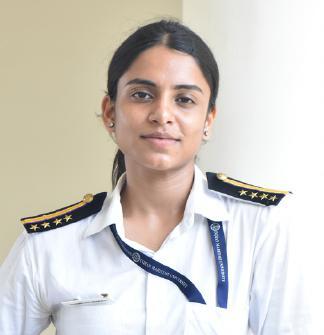
Writing on women’s hardships, their plight, their age-long oppression, and every possible form of injustice they’ve endured as a unit is now deemed downright outmoded. Not officially, no. But remember how they say “Actions speak louder than words”? Inarguably, it’s true to life. I believe I can fathom where this humdrum standpoint stems from. In fact, this whole narrative might sound a tad opinionated, I am aware. I will give it a shot nonetheless
Let’s view it this way. Companies looking to hire girl cadets, seemingly providing them preference over male cadets is the ultimate
“break the ice” move that has eased women’s ingress into the maritime sector. Now this step, however biased and unfair it may appear, is necessary because ‘women in maritime’ is still not a prevalent sight.
Providing an equal platform for everyone, irrespective of their gender, is a practice that ought to be practiced across all industries (solely because mankind has progressed way ahead of its time) It is done in the hope to set
the seal on equal representation of men and women, uniformly So, this predilection has no supplementary motto. As a reader, you might recall that the main purpose of reservation (of any kind) has always been to uplift underprivileged communities.


It seems unjust in the interim, I’d second that. Yet, it’s the only way that’s functional enough to yield the desired outcome all told in the long run. However, the manner in which this ‘preference’ is perceived by the male mass doesn’t seem to align with the bigger picture per se. I have individually observed a developing sense of aversion in the minds of my male colleagues and how a lot of them regard women’s admittance to maritime as a complimentary pass to travel abroad. Some of them strongly believe that they are losing better and deserving job opportunities to their female counterparts

A good few numbers carry this notion that women mostly choose to opt out of working in this field way earlier and hence it’s better and wiser if women choose a physically less challenging field in the first place itself
Prejudice against women of supposed lesser calibre than men has drawn breath for so long that any form of discussion on it seems fruitless now. But this preconception is still subsisting.
However salient the advancement in the mindset of people might appear to be, the root cause of the persisting trouble is always that one stubborn area in the psyche that refuses to let go of its adamancy.
Admittance and acceptance must happen simultaneously. Misalign these two and complications, foreseen and unforeseen, will begin creeping up sporadically. Initiatives to promote admittance are being taken. That’s achieved It’s actually quite appreciable and heartening. Now, it’s time to shift the focus on acceptance a little bit. Acceptance of the fact that “there’s room for many and all” has to be inculcated in emerging and existing seafarers (both men and women) to establish the effective addition of women in the maritime sector. Admittance sans acceptance only leaves room for insecurity, prejudice, and hostility, and these factors never do any good to any cause




Some great news for all our readers After successfully hosting the Maritime SheEO Conference '22 last year, we are now gearing up for the next conference which will be held once again in Mumbai on 21st November 2023. This is an annual event that focuses on advancing diversity and inclusion in the maritime industry. In the last two years, these conferences were held in 2020 and 2021, and attracted attendees from over 80 nations, making it the greatest maritime diversity occasion!

As in the previous two years, the conference will be a hybrid one with a physical event in Mumbai, India, where 150+ individuals are expected to attend in person, and more than 2000 people are expected to participate virtually.


The Maritime SheEO conference is a global event, with attendees expected from different sectors of the maritime industry. The main objective of the conference is to bring together industry leaders, experts, shipping professionals, and stakeholders to discuss and address the challenges and opportunities facing this industry. The agenda for the day will feature fireside chats, debates, presentations, and talks on a wide range of issues/topics, including gender diversity, sustainability, digitization, and innovation. We hope to see you there participating in this mega gathering. Please do save the date and in case you require any more information on the conference please feel free to get in touch with us.
For the moment, our confirmed partners for the conference include:







While the list of confirmed speakers so far are:
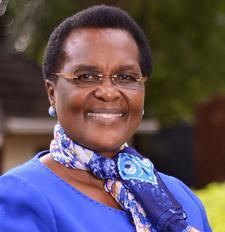
Additionally, we give below the really encouraging feedback from attendees of the 2022 Maritime SheEO Conference.

It was indeed a pleasure and honour to attend the ‘Largest Diversity Conference’ in the Maritime industry, an event well attended in person and digitally. Sanjam’s efforts and hard work paid off as a flawless event with eminent speakers from the world over, deliberating on the need for Diversity in Maritime Industry for sustainable growth
Geetha Sheth
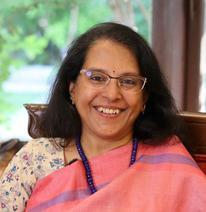
AVP - Liner (Marketing & CS), J M Baxi
Thank you so very much for making us a part of your conference and we truly applaud the effort. We are inspired and so excited to work together with our fellow women, across the world, to create a better, more inclusive environment in the future for women like us. My only feedback is that you are awesome and we ' re so excited to come back next year, hopefully with more success stories of accomplished milestones that we have set out to conquer
Ghazalah Moloobhoy Director, AS MoloobhoyThank you for a great conference and for making it accessible by conducting a hybrid event.

For me, it was a very interesting event, with a very diversified group of speakers and moderators, who all had some interesting points and stories to tell All in all, it was good to follow and left me with some food for thought, but also some documents for reading afterward.
Looking forward to a more diverse future
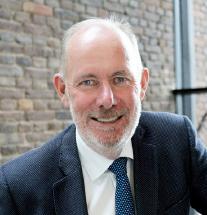 Maike Nimmrich MPC Containerships
Maike Nimmrich MPC Containerships
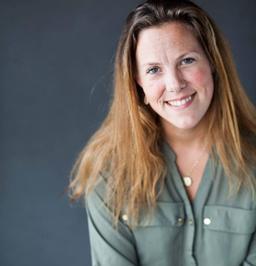
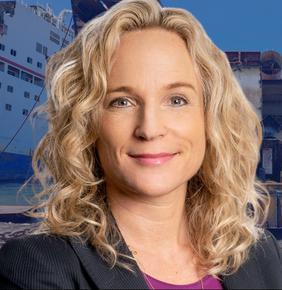
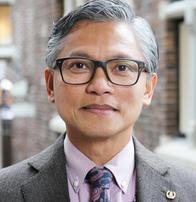 Prof. Ronán Long Director at WMUSasakawa Global Ocean Institute
Prof Max Mejia Nippon Foundation Professor of Maritime Governance, Policy, and Administration at the World Maritime University (WMU
Pia Meling Managing Director at Grieg Green
Amb. Nancy Karigithu Kenyan Candidate to the IMO Secretary General
Birgit M, Liodden Founder at The Ocean Opportunity Lab
Prof. Ronán Long Director at WMUSasakawa Global Ocean Institute
Prof Max Mejia Nippon Foundation Professor of Maritime Governance, Policy, and Administration at the World Maritime University (WMU
Pia Meling Managing Director at Grieg Green
Amb. Nancy Karigithu Kenyan Candidate to the IMO Secretary General
Birgit M, Liodden Founder at The Ocean Opportunity Lab
Highlights from last year's conference:

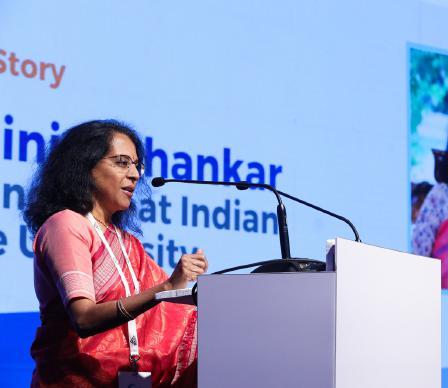
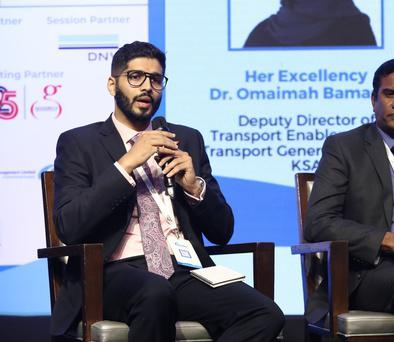
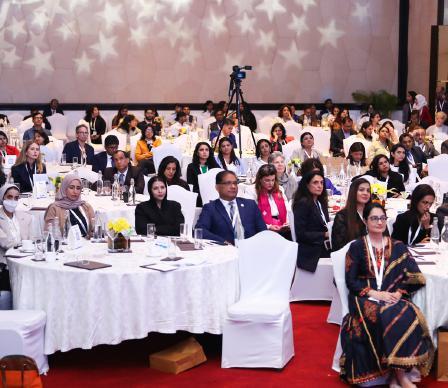
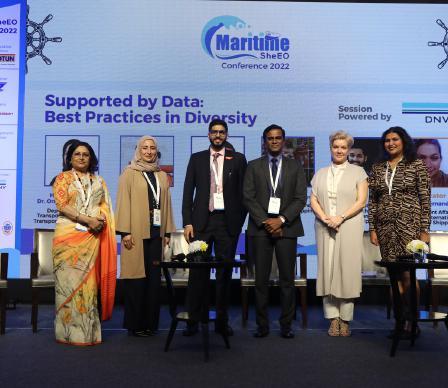
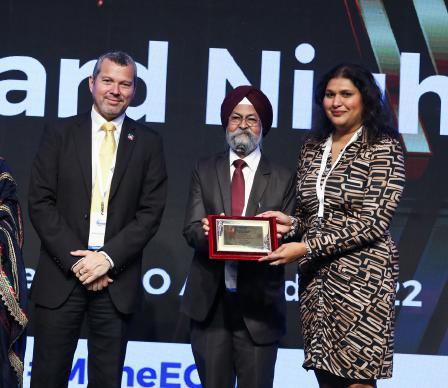
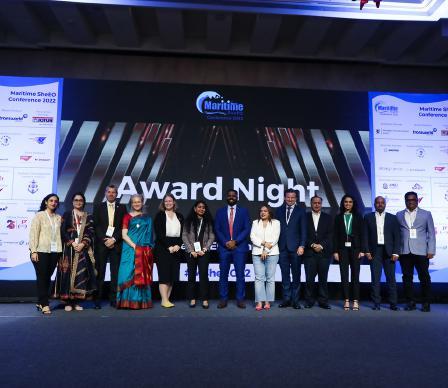

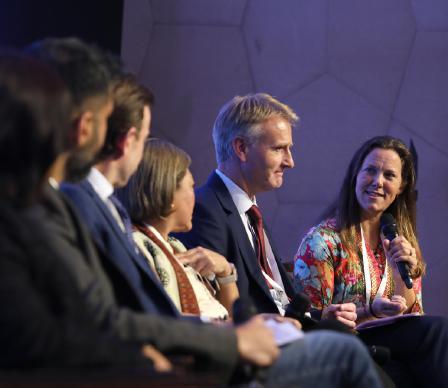
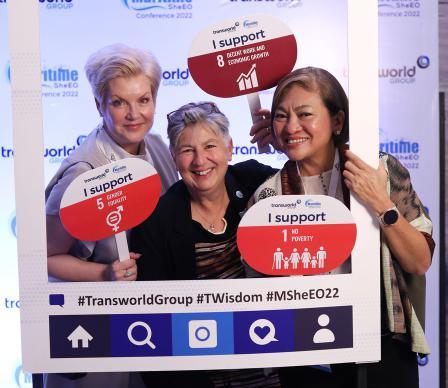
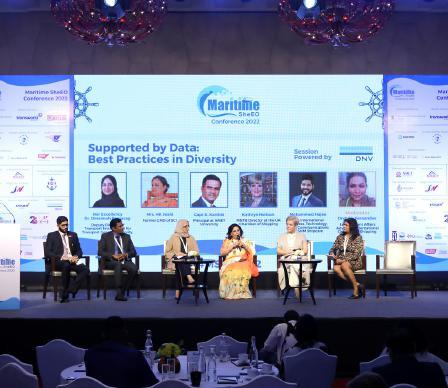
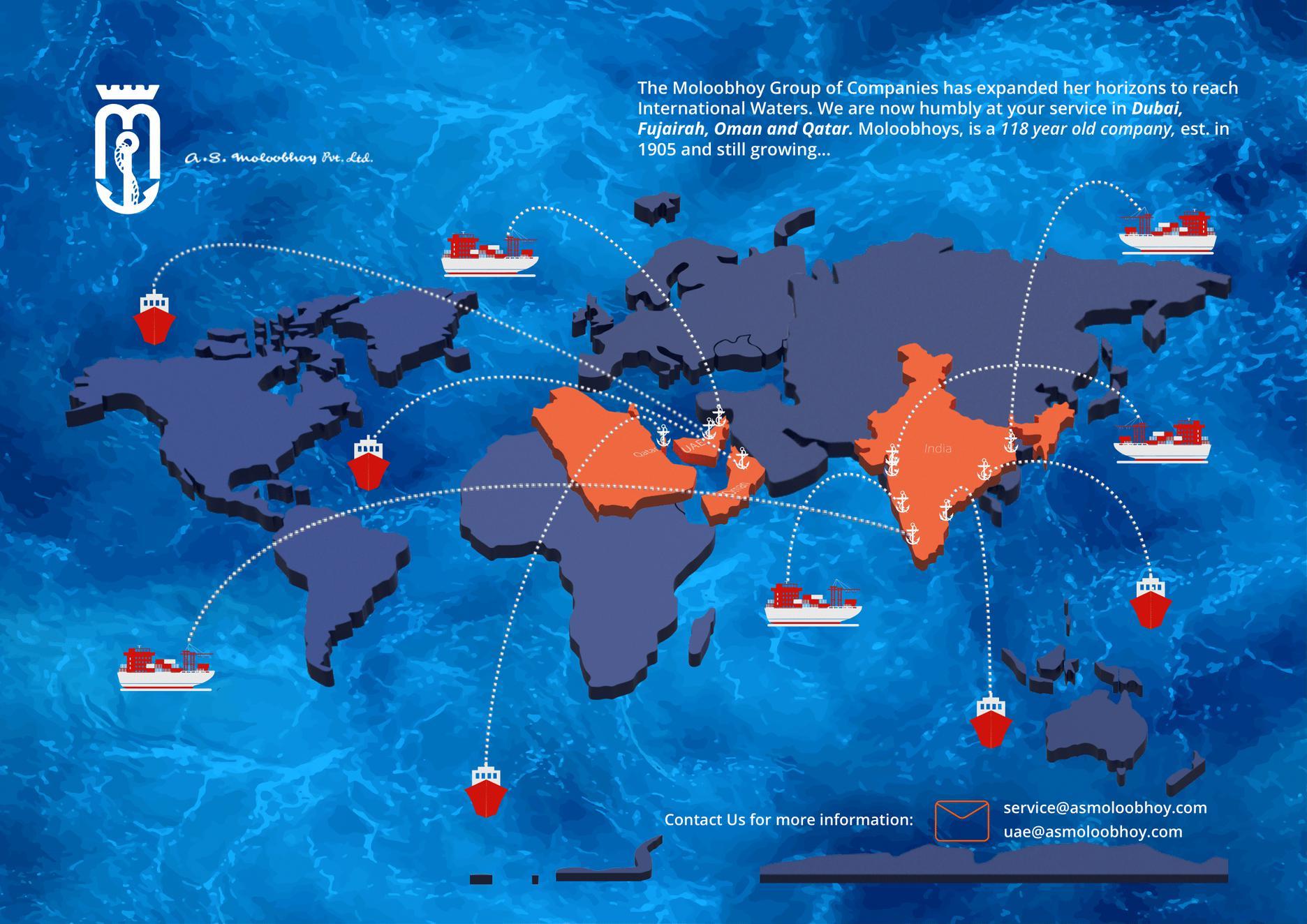

Dowomenhaveenoughresources?

We need to empower women in Maritime
We need to respect women in Maritime
We need to employ women in Maritime
We need to train women in Maritime
We need to promote women in Maritime
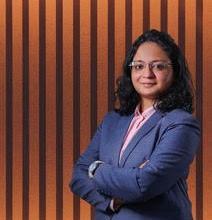
In this report, Jyotika describes the harrowing experience of crew abandonment when owners default on payments and depart, leaving the vessel and crew in the hands of others.
More often than not, when one thinks of a merchant vessel, the only image that comes to mind is of a container vessel stacked with containers gliding across the surface of the vast ocean However, a key element is always missing; the Master and the crew, without whom the vessel is sailing nowhere. Even though their role is so critical, the problem of abandonment of seafarers is neither new nor an issue of the past The action of abandonment is not merely a breach of law and international conventions, but it has such a deep impact on the lives of the crew.
Captain S Khan was the Master of a tanker vessel which had shortly before discharged its cargo and was headed to the Special Anchorage, Dubai for dry docking. The vessel was low on fuel and its certificates were due to expire The vessel was mortgaged to a Bank in Fujairah. While on the surface this exercise seemed routine and mundane, the vessel and the entire crew, 21 of which were Indians, were about to go through an agonizing month ahead
The owners, allegedly, had not paid the crew, including the Master, wages for the past 7 months The Technical Manager at that time, Captain Rohit Shrivastava, had been on his wit’s end, trying to have the payments cleared from the owner. The situation was tense as the alleged dues were close to USD 2.3 million. The


dry dock would have set it back by another USD 2 5 million Captain Shrivastava, on his accord, had ensured that there were enough provisions on the vessel to ensure that the basic need of food and medical care was met. Soon, the owner was, allegedly, unreachable.
The crew refused to assist in the dry-dock till their wages were cleared. If the vessel went ahead with the dry-dock, it would have racked up another debt of USD 2.5 million. The vessel was not worth more than USD 4 3 million While the vessel remained anchored, there were no instructions from the Master, as there were no orders from the owner. The situation intensified, as there were only 15 days remaining for the certificates to expire, and once the certificates did expire, no port would grant the vessel entry.
Captain Khan reached out to me. Although we had known each other for some time, this time around it was a distress call. The crew was agitated and angry and had already assaulted Captain Khan. They had no other place to go. Without the wages, some of them were defaulting on their home loans, were unable to
send money home to run their house, had ailing parents who needed funds for their medical needs, etc. These were real people with real lives, a fact that owners who abandon their vessels seem to forget


With the able insight of Captain Shrivastava, it was decided that the vessel would not be sent for dry-dock, instead by involving the mortgagor bank, the vessel should be sold and from the proceeds, the crew would be paid and sent back home. The following weeks were bathed in stress, as a buyer had to be found and the sale had to be finalized, while the time was ticking on the expiry of the certificates.
Eventually, the vessel was sold and found a home with a new owner. Captain Shrivastava ensured that all the dues of the crew and Master were paid upfront and they returned back to their countries safely
The vessel, now with its chequered history, is dead. The Master and the crew, however, continue to carry the emotional scars from this ordeal
The author is an advocate practicing from New Delhi, India, and has a specialization in Maritime Laws from the National University of Singapore She can be reached at jyotika@jyotikajain.in
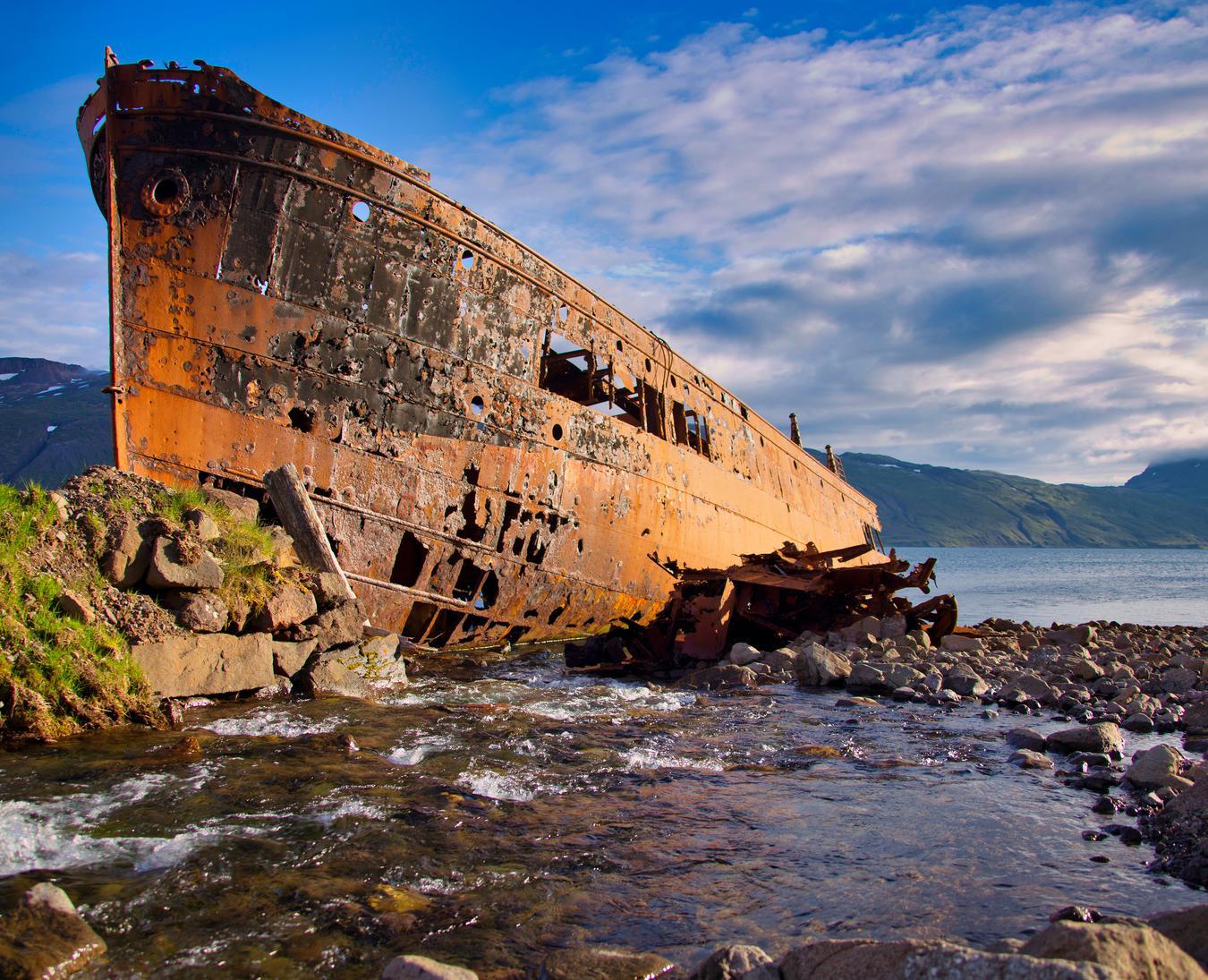


SHE SEES aims to rewrite women into maritime. Led by Lloyd’s Register Foundation this exciting research and engagement project aims to showcase female involvement in the maritime industry over the centuries.
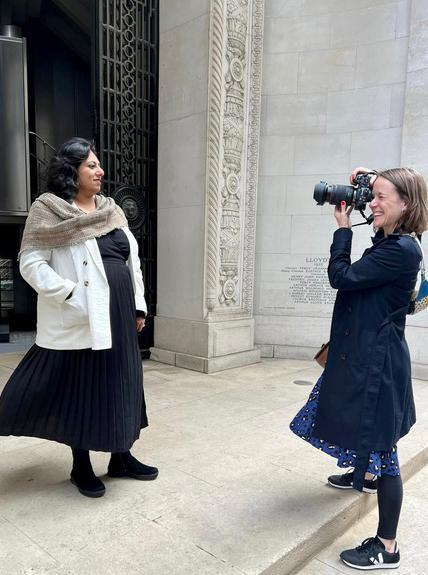
The key theme of the initiative is diversity, equality, and inclusion. By ensuring that forgotten voices are heard and individuals’ stories told, the project will highlight the many experiences and opportunities presented by a career in maritime.
The contemporary component of SHE SEES is led by portrait photographer Emilie Sandy and textile artist Erna Janine. Their approach is to present stories of current women through a conceptual and visual approach –– ‘Storytelling Through Textiles and Portrait Photography’
A showcase exhibition in September will present up to 20 women working professionally across a range of maritime roles within the UK These will be woven together with new stories of women in maritime emerging from the historical research. By sharing their stories, visions, and collective experiences, these women will inform the creative project that uses photographs, textiles, audio, and moving images.
The physical components of the show will be based on contemporary elements relating to shipbuilding and maritime industries, in combination with hand-woven textile work created from historical maritime fibres: flax,
hemp, and jute. These softer components within the installation will highlight the significance of textiles within the maritime history with fibres grown specifically for the use of the project by partners around the UK and India.
The project will be exhibited during London International Shipping Week (LISW) 2023 A content call for historical stories is currently open - find out more by clicking here.
